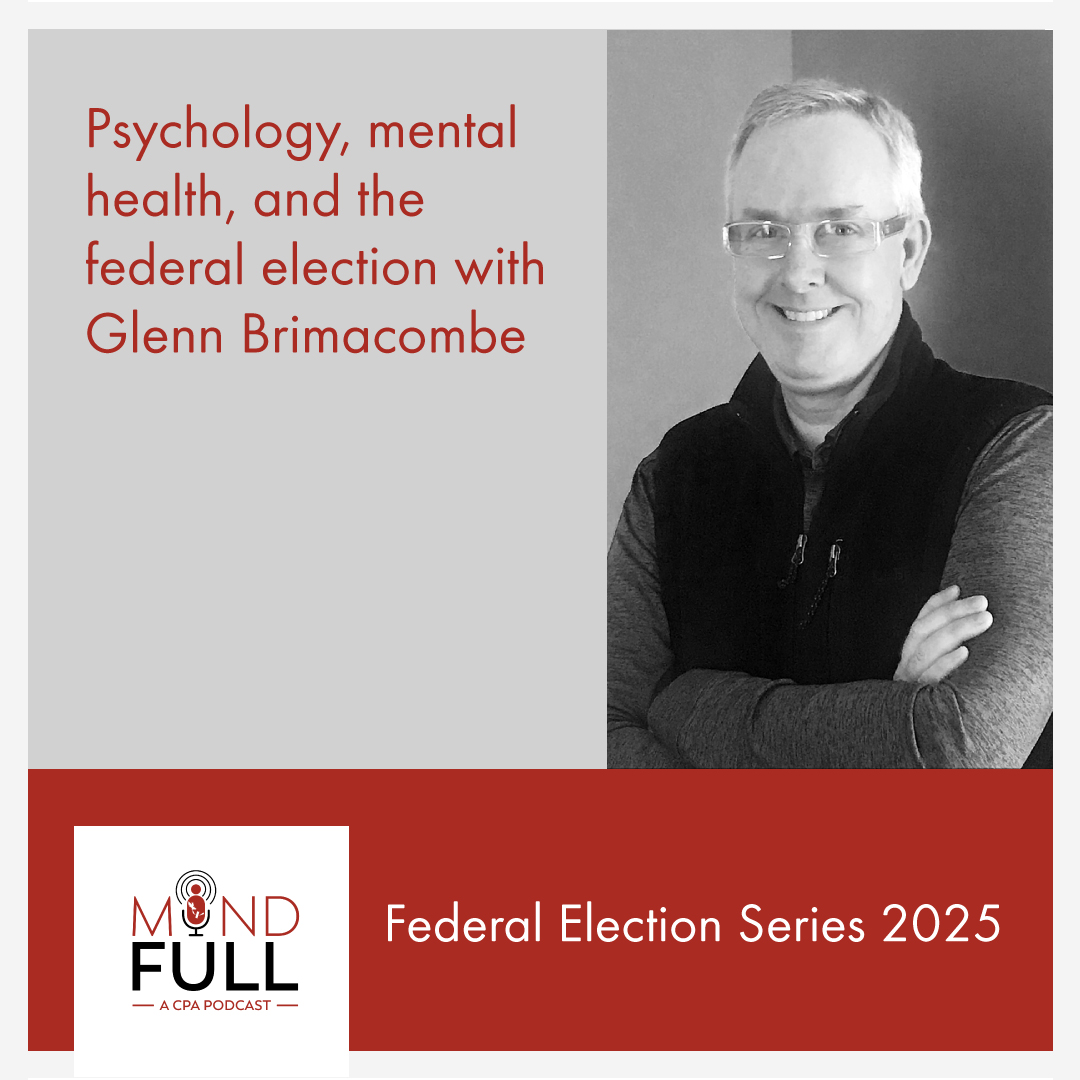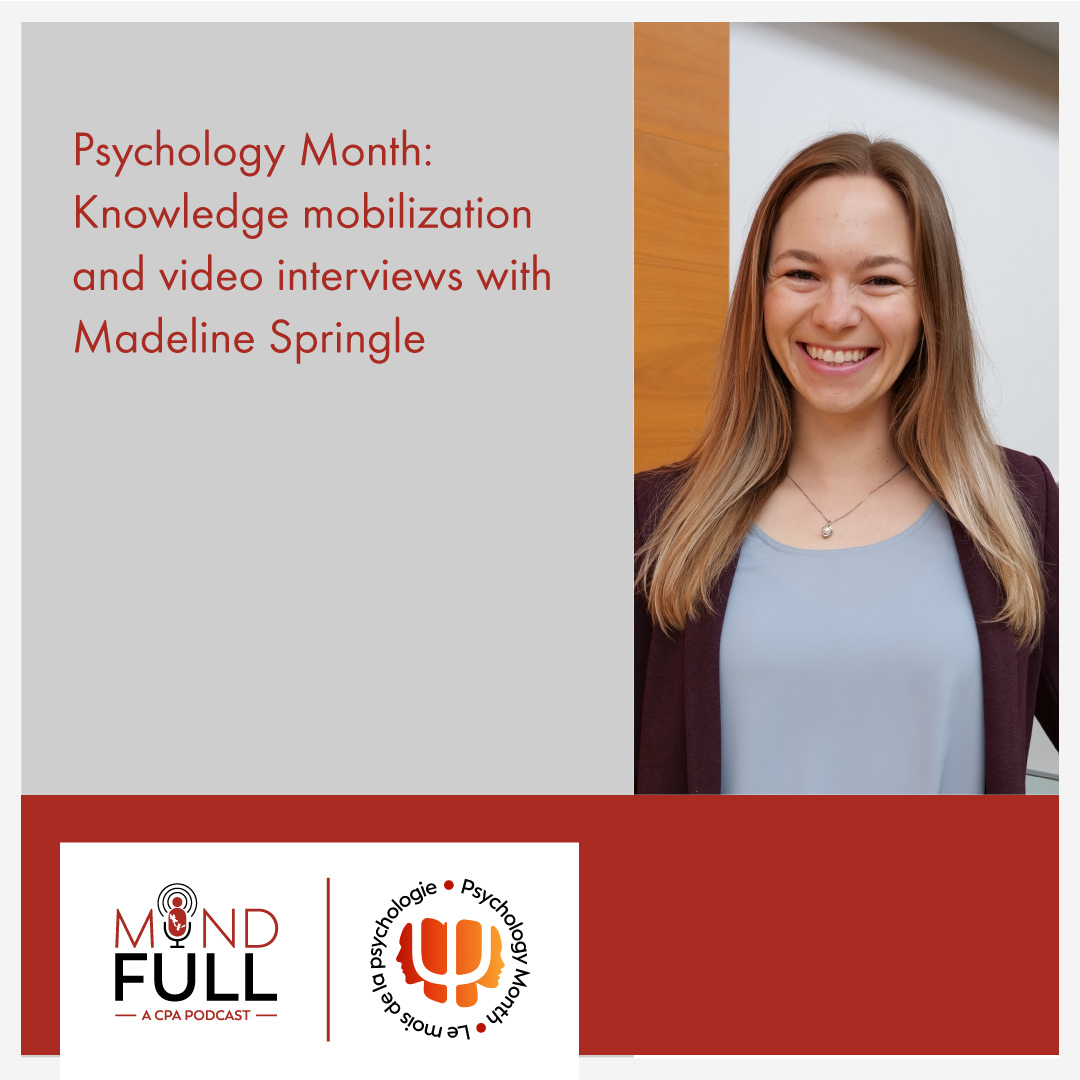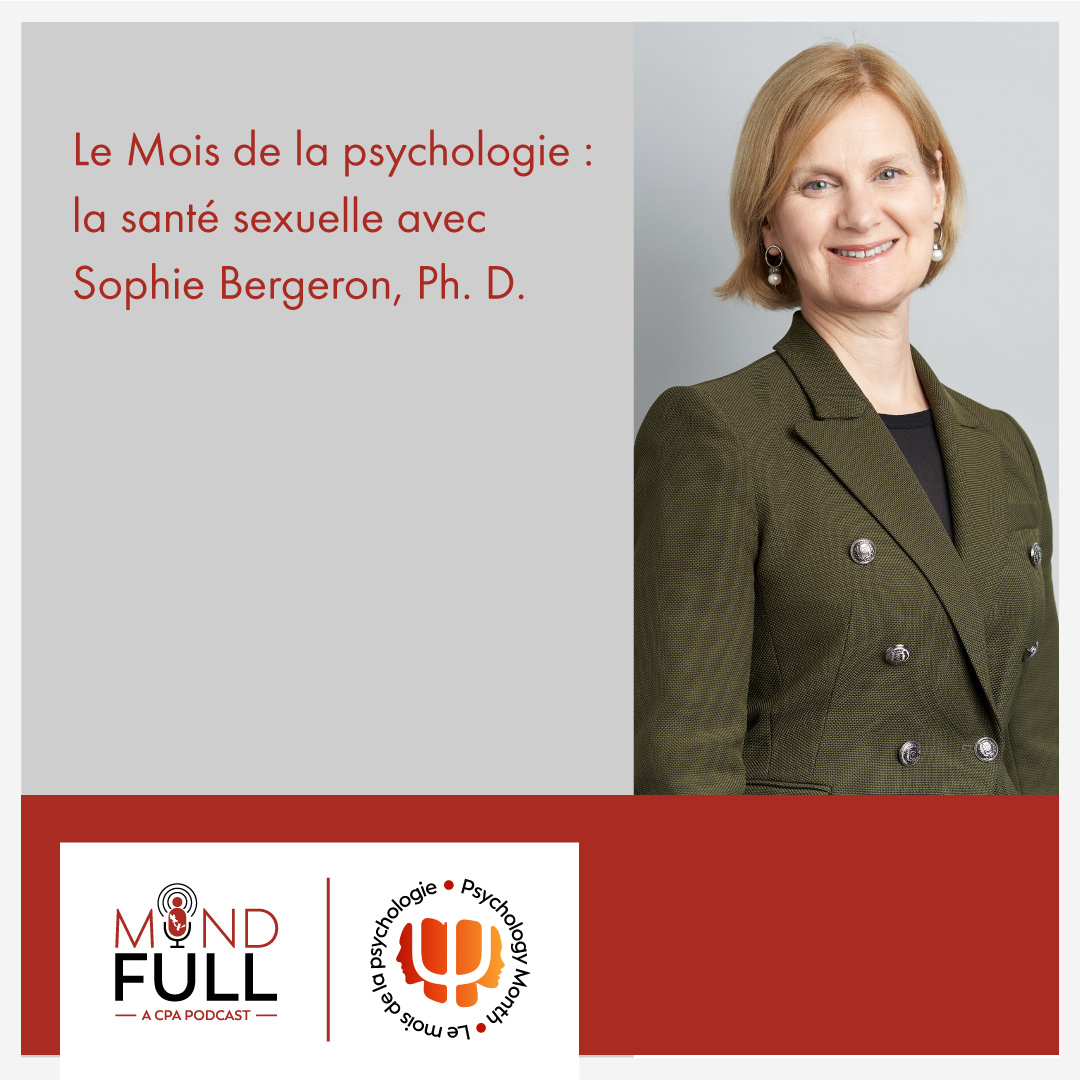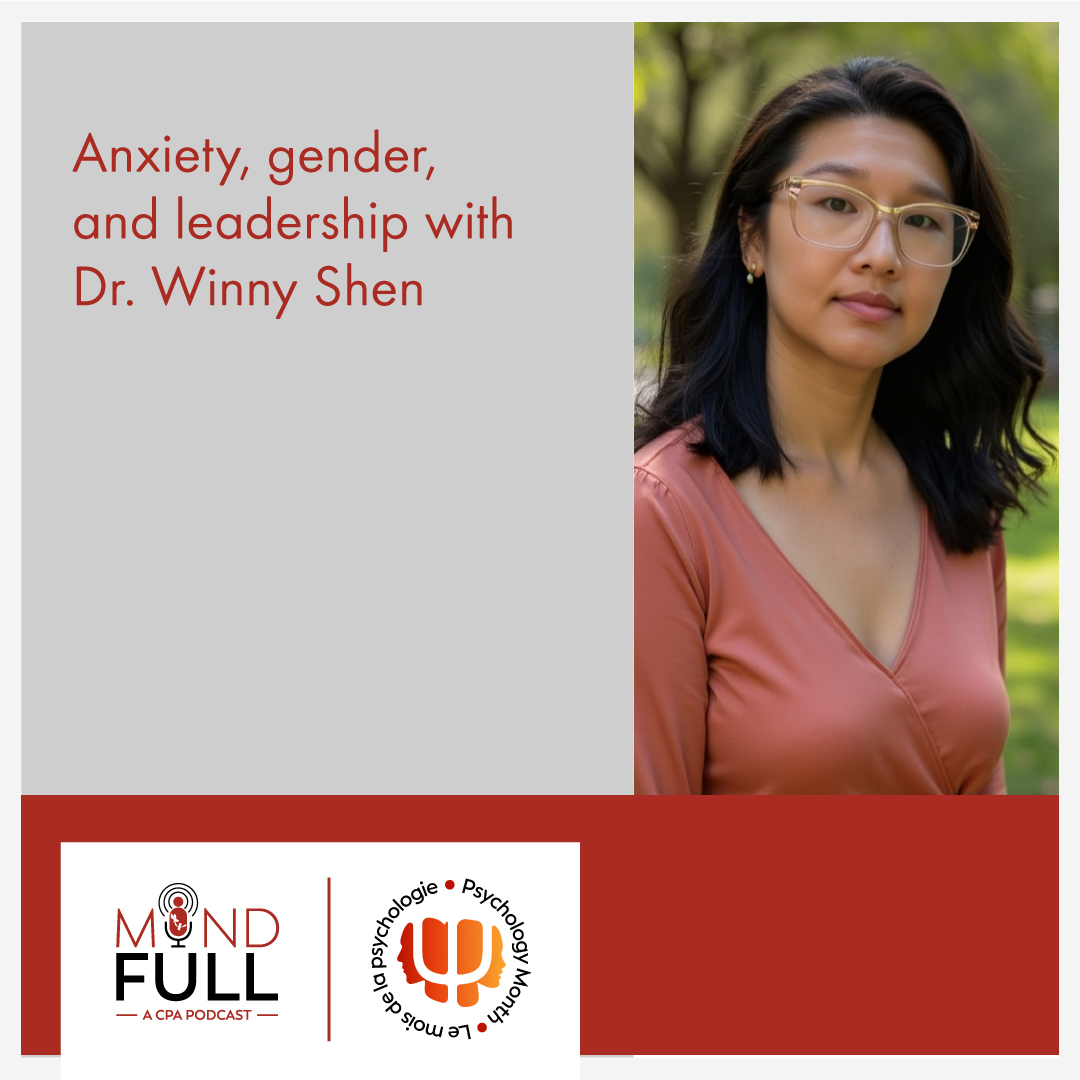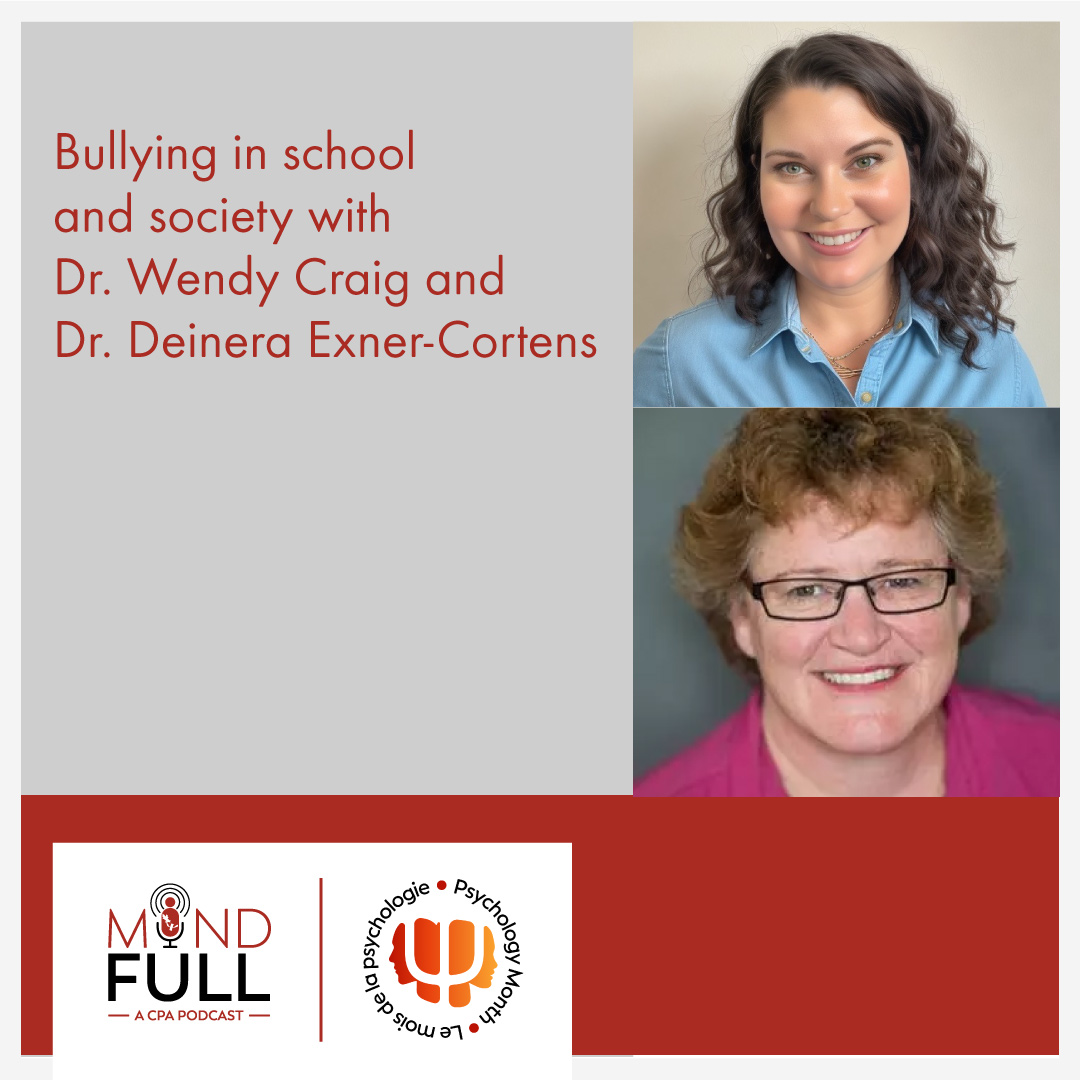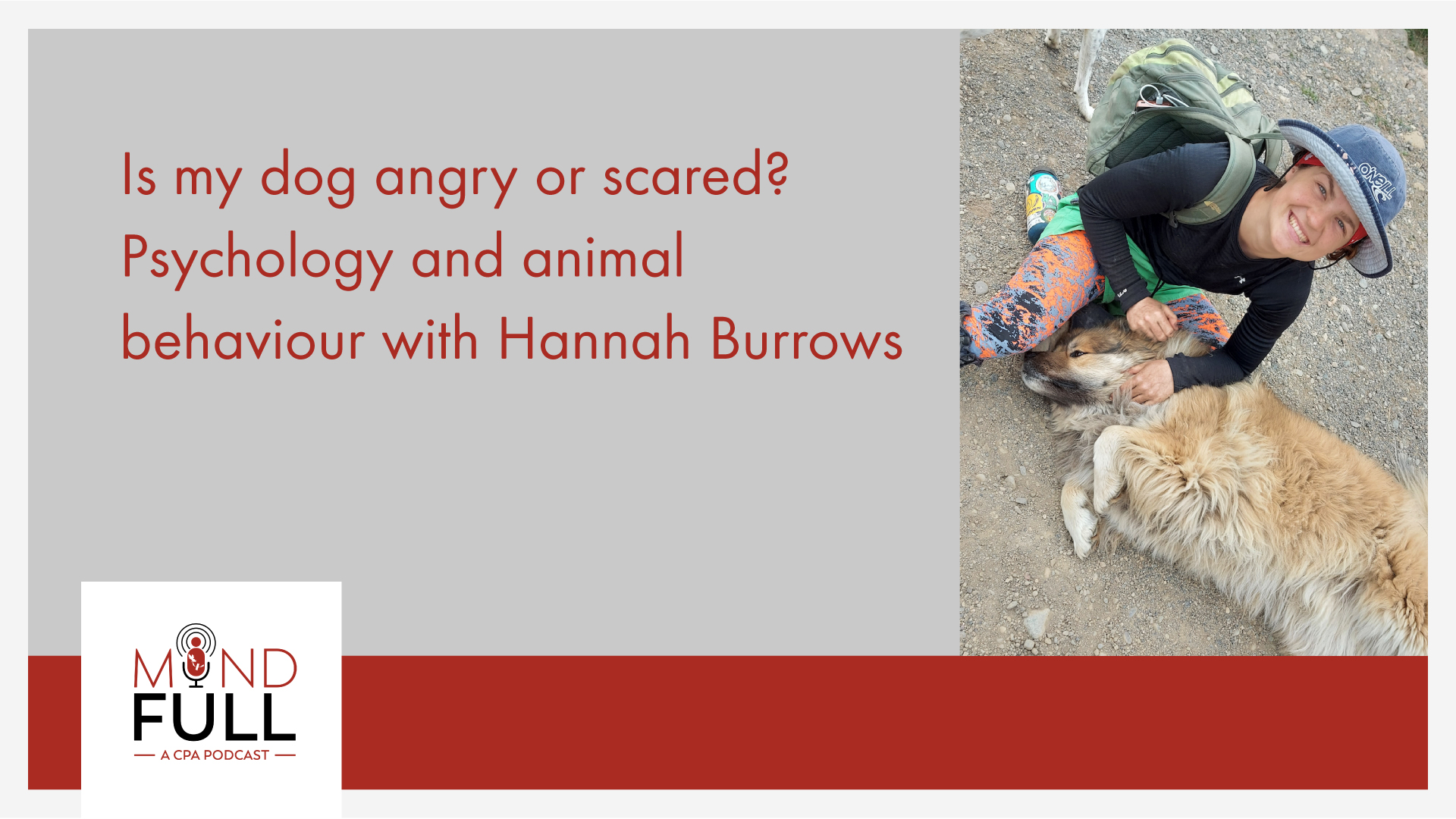
In this week’s episode of the Mind Full podcast we talk to Hannah Burrows, a Master’s psychology student specializing in animal behaviour. Specifically, the relationship between dogs and people. We talk about dogs, research, and the incredible things we have learned about animals over the years – crows, cuttlefish, and of course our own furry companions
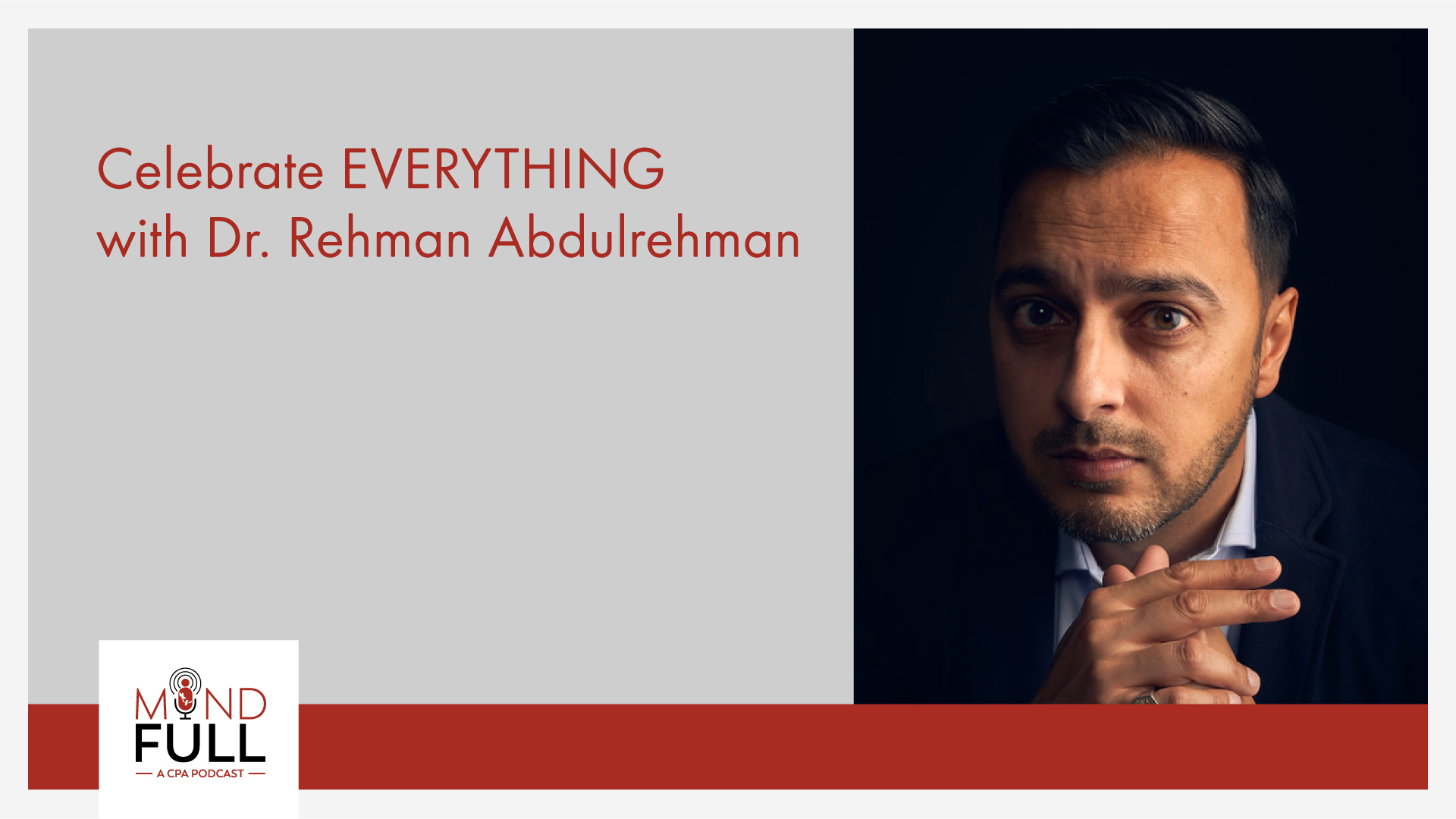
Every time we get to celebrate something, we’re a little happier as a result. A promotion, a birthday, an unusually warm and sunny day in January. The fact is, there are hundreds of reasons for a celebration, but for some reason we don’t lean into them all. Dr. Rehman Abdulrehman has a radical idea – let’s celebrate EVERYTHING!
A virtual reality tour of a residential school with Dr. Iloradanon Efimoff and Dr. Katherine Starzyk
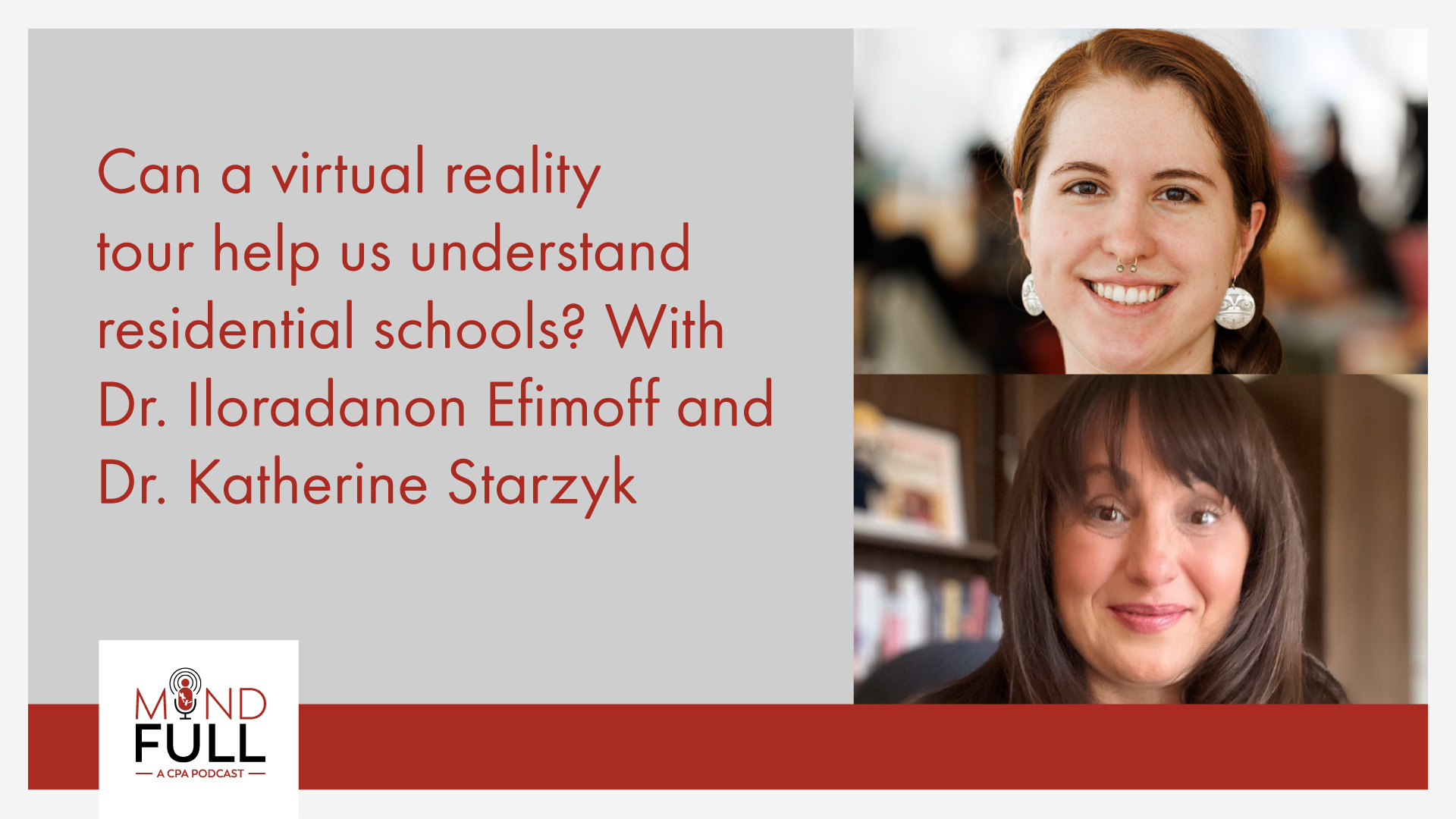
Dr. Katherine Starzyk and Dr. Iloradanon Efimoff created a virtual reality tour of a residential school. They collaborated with Survivors and computer scientists to see if a tour in this manner could change attitudes toward residential schools and reconciliation. Did it work? Well…kind of. But that doesn’t mean the study wasn’t worth doing! On today’s episode of Mind Full we discuss what they learned and how even disappointing results move science and understanding forward.
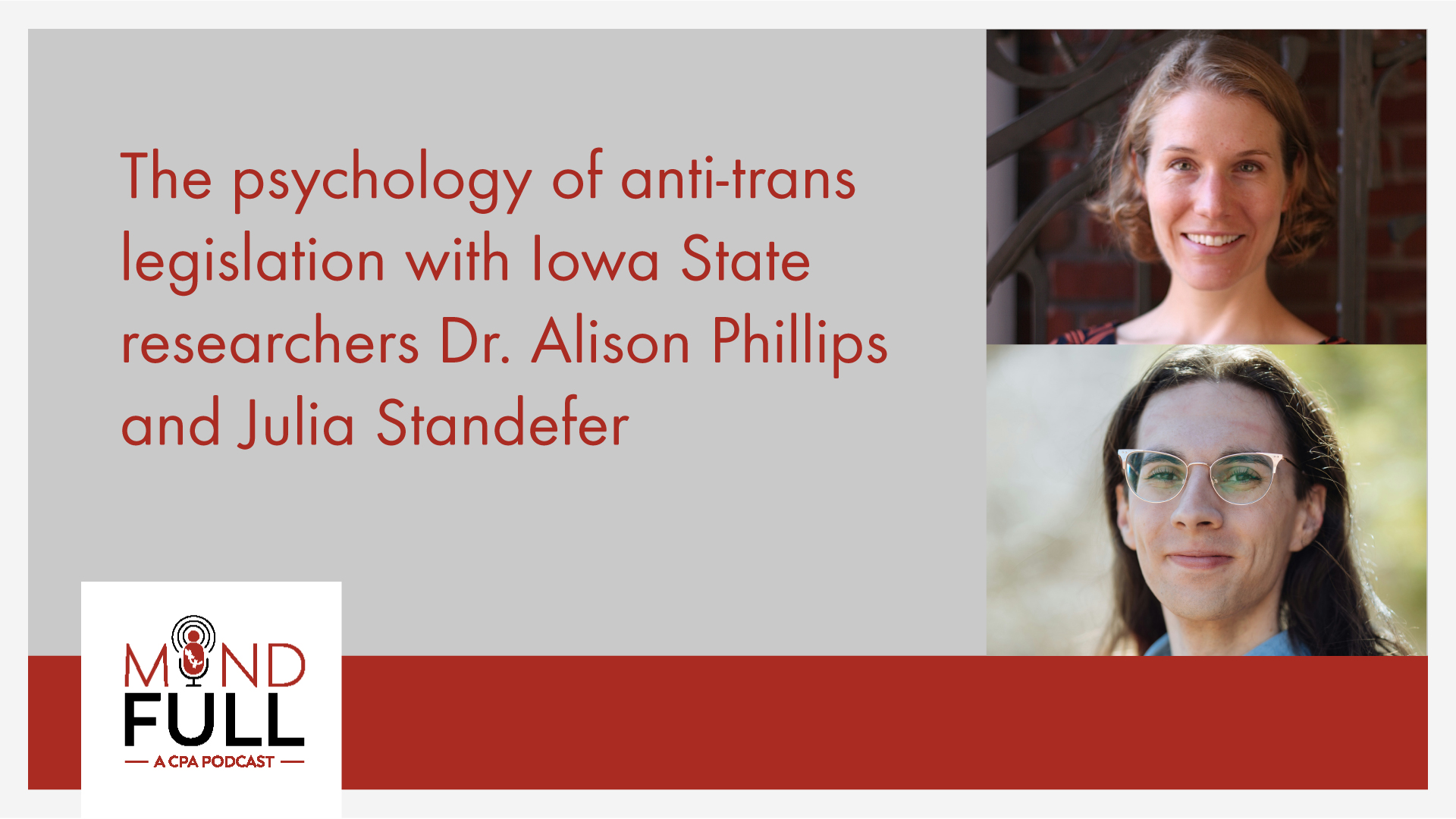
We’ve spoken on Mind Full before about anti-trans legislation, and the push to sideline the scientists doing work in the sex and gender space. But we’ve always done so from a Canadian perspective. We were curious to know how American psychologists are feeling at the moment. Dr. Alison Phillips and Julia Standefer, researchers at Iowa State University, tell us about their current situation and a recent article.
Glenn Brimacombe is the CPA’s Director of Policy and Public Affairs, and a registered lobbyist. Glenn advocates for mental health funding and parity (to get mental health coverage on par with physical health coverage), and has some ideas about how to keep mental health at the forefront of the issues as an election looms.
Dr. Jillian Roberts is a Professor at the University of Victoria, a registered psychologist in B.C., and an author who has written a string of successful children’s books in the Just Enough and The World Around Us series. Her latest book, The Friendship Guide, is a book that helps kids learn how to make friends and how to be a good friend.
Madeline Springle is a second-year Ph.D. student at the University of Calgary, who is winning awards for her ability to mobilize knowledge. Specifically, she is taking the research she has done into one-way video interviews, and using it to help people who might use this knowledge to better prepare for their own job search.
As we close out Psychology Month, we wanted to highlight knowledge translation (explaining the science for a more general audience) and knowledge mobilization (putting new findings into practice such that they help those they were designed to help) because without those, science exists in a vacuum!
Cette semaine, dans le cadre du Mois de la psychologie dont le thème, cette année, est « Les femmes et la science », nous présentons Sophie Bergeron, Ph. D., qui détient une Chaire de recherche du Canada sur les relations intimes et le bien-être sexuel au Département de psychologie de l’Université de Montréal, où elle dirige également le Centre de recherche interdisciplinaire sur les problèmes conjugaux et les agressions sexuelles (CRIPCAS), l’Équipe SCOUP Sexualité et Couple, et le Laboratoire d’étude de la santé sexuelle. Ses travaux portent sur les déterminants psychosociaux de la santé sexuelle des individus et des couples ainsi que sur le traitement des dysfonctions sexuelles.
There has always been a stereotype that women are “more emotional” than men, and even that they are “too emotional” for leadership roles. Dr. Winny Shen joins Mind Full to discuss the results of her study which suggest that not only is that stereotype untrue, the exact opposite might actually be the case.
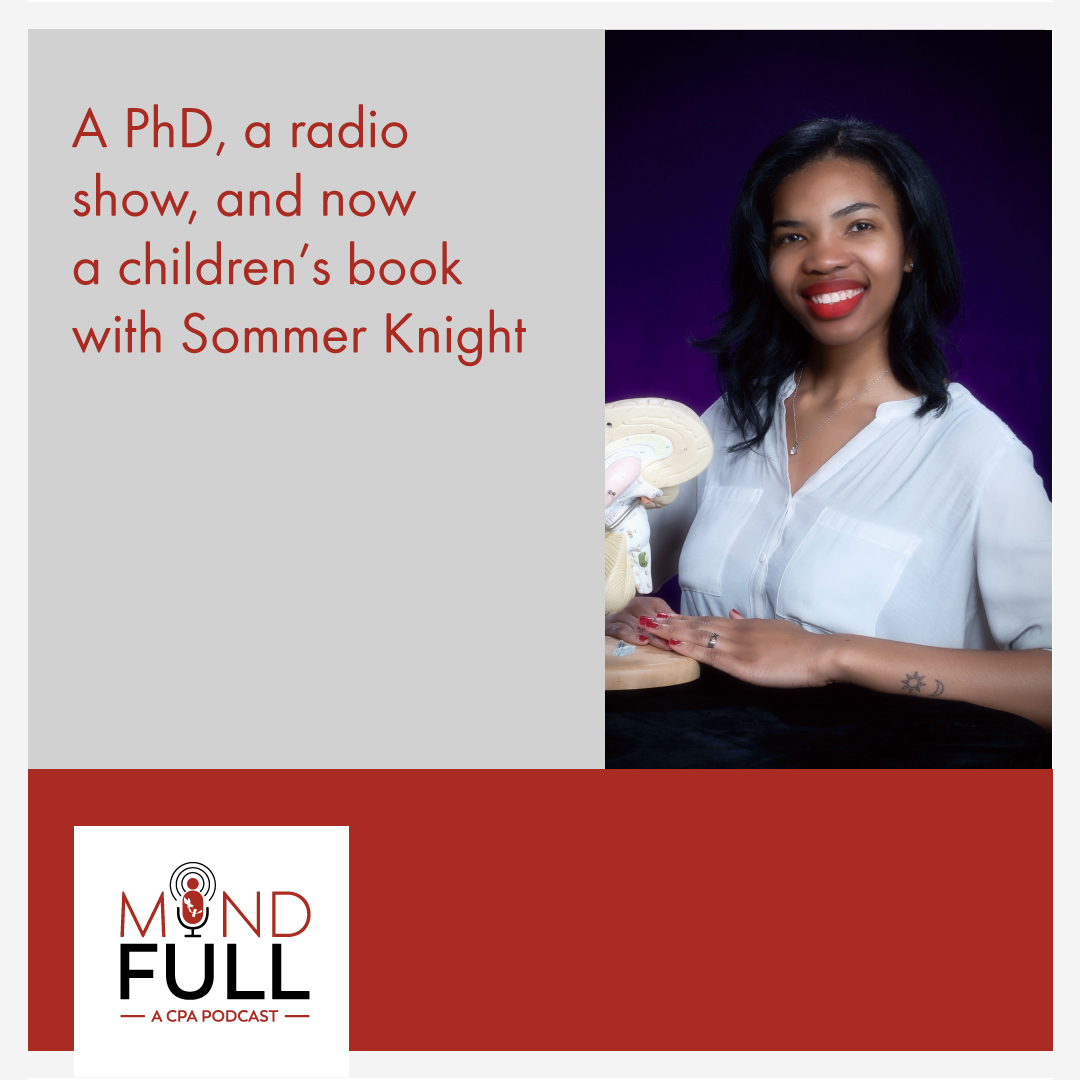
While completing her psychology PhD, Sommer Knight is busy putting everything she learns to use. She co-hosts a radio show and has now written a children’s book to advance the conversation about mental health in Black families and Black communities.
The book is called Today Is a Rainy Day, and if you’re in the Ottawa area Saturday March 1st, join Sommer and her co-authors and illustrator from 1-5pm at Indigo Rideau, 50 Rideau St, for a book signing event!
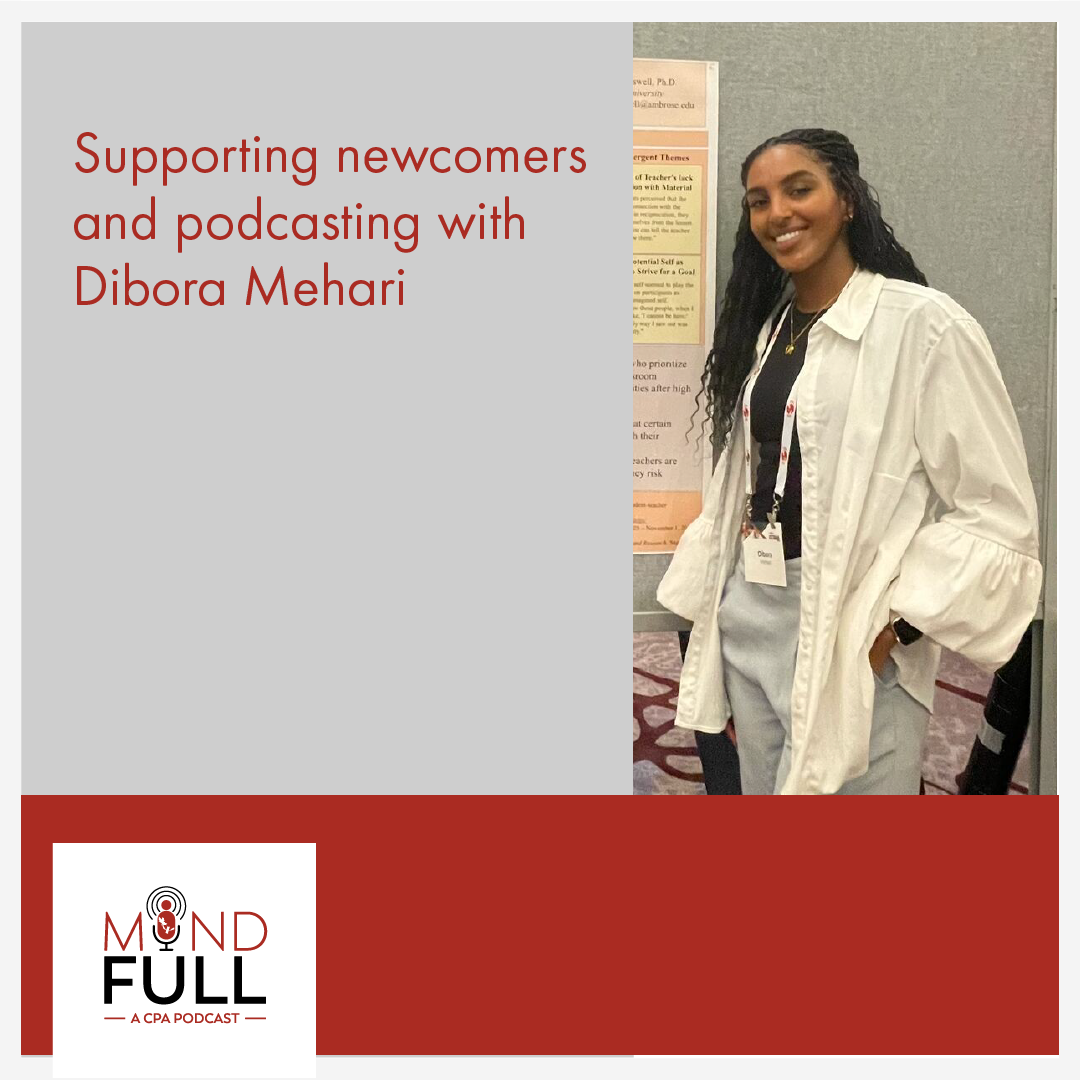
Sometimes we just think someone is interesting enough that you should meet them – and this is one of those times. Dibora Mehari has just graduated with a Bachelor’s degree in psychology, and she is an advocate for newcomers to Canada. Specifically, people from her Eritrean and East African community. She has also joined some friends to start a podcast.
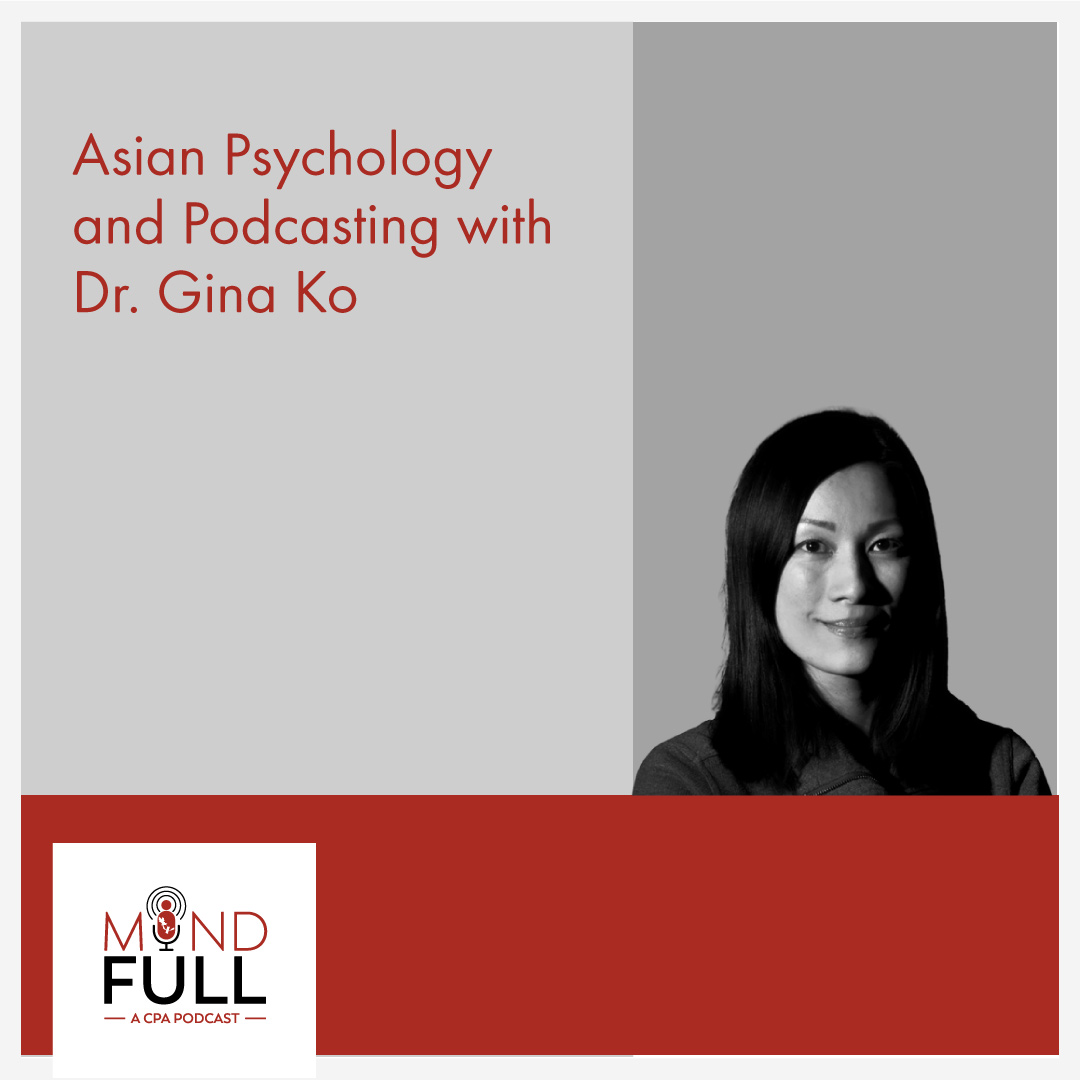
A few years ago, we spoke with Dr. Gina Ko when she launched her podcast Against The Tides Of Racism. Now going into its fourth year, we catch up with her and discuss the impact of the podcast and the progress that has occurred, including the founding of an Asian Psychology Section at the CPA.
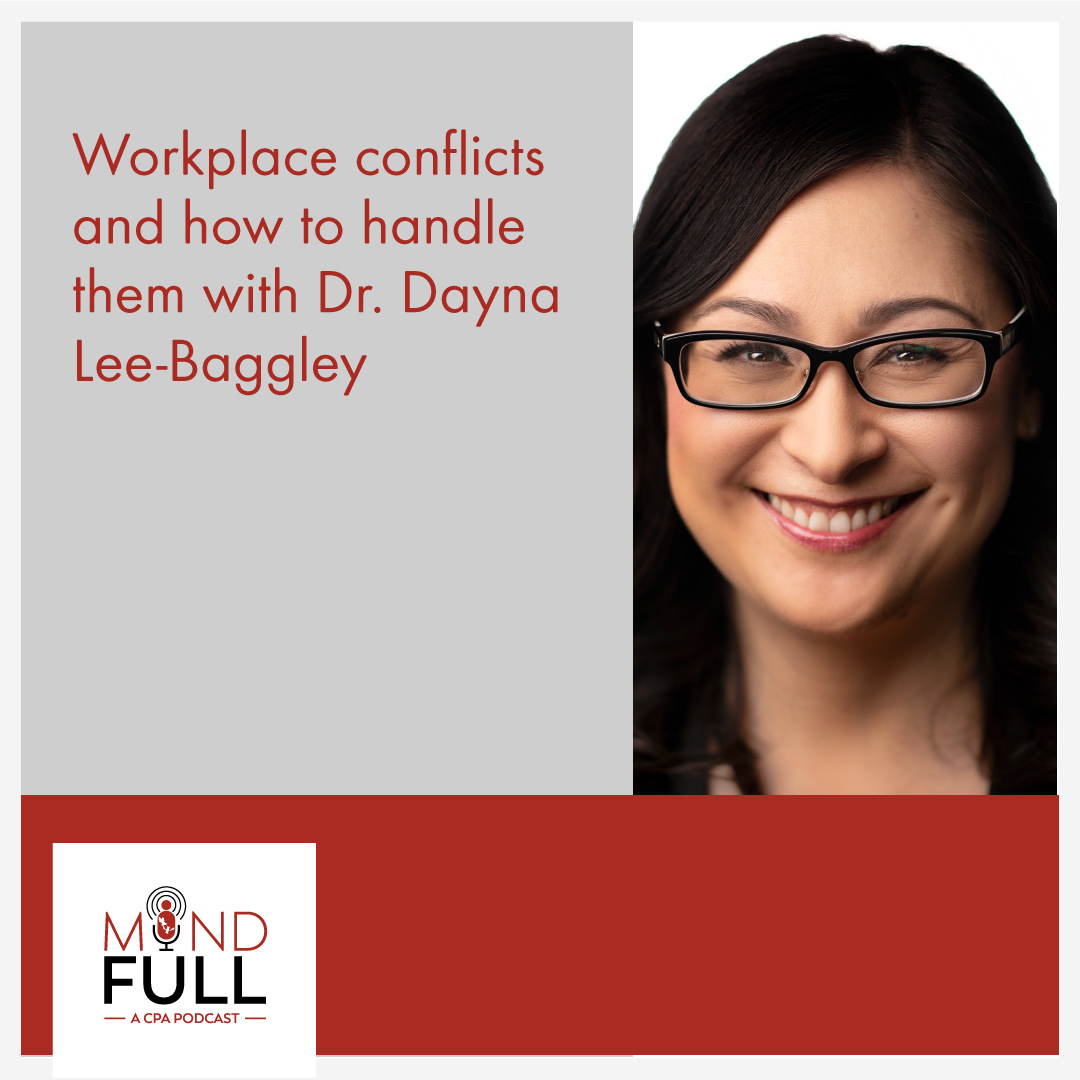
Dr. Dayna Lee-Baggley from Saint Mary’s University joins Kathryn and Eric to discuss workplace conflicts and resolution styles. Dr Dayna has created free courses and an app for organizations to become more effective at handling conflicts in the office.

October is Autism Awareness Month in Canada, and we’re closing the month by highlighting Goodness Gift, a social enterprise of the South Asian Autism Awareness Centre (SAAC) that employs people with autism to help them integrate into the workforce and their communities.
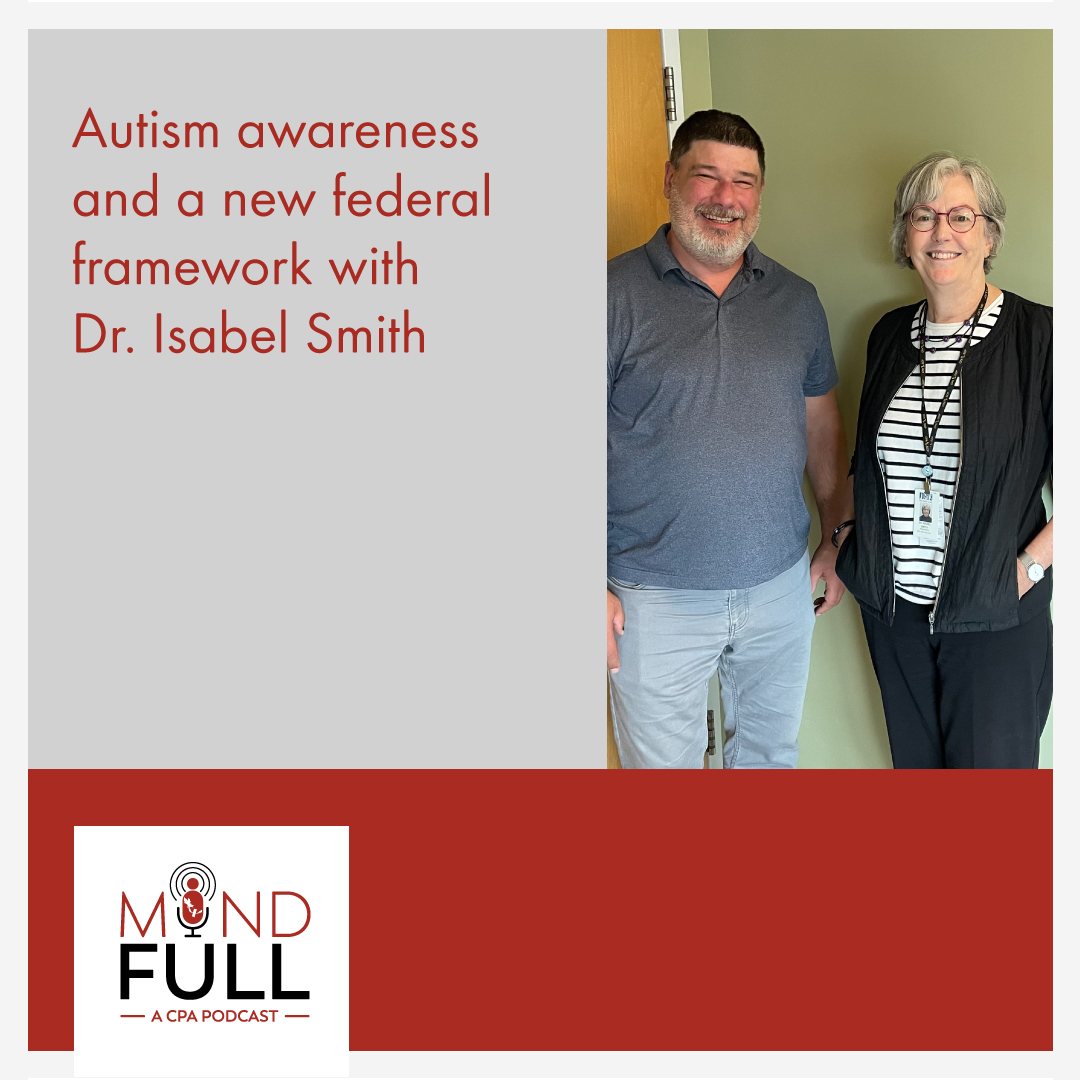
October is Autism Awareness Month in Canada, and the federal government has launched a new framework and strategy for autism. We spoke with Dr. Isabel Smith about autism, awareness, and her contributions to the new national initiatives.

When Canadian newcomers face a language barrier, it often falls to their children, sometimes very young children, to bridge the gap at the bank, the doctor’s office, or the grocery store. This is Child Language Brokering, and it remains an under-studied phenomenon. Today’s guests, Dr. Anusha Kassan (UBC) and Katerina Palova (TIES Centre for Immigrant Research), have written a book along with Halley Silversides, that helps us all understand.

What is the difference between artificial intelligence and generative artificial intelligence? What are the ethical implications surrounding the use of generative AI, and the ethical ambiguities that are part of it’s creation? Laila Shaheen and Nia Pazoki of Simon Fraser University discuss their upcoming virtual conference ‘The AI Enabled Educator’
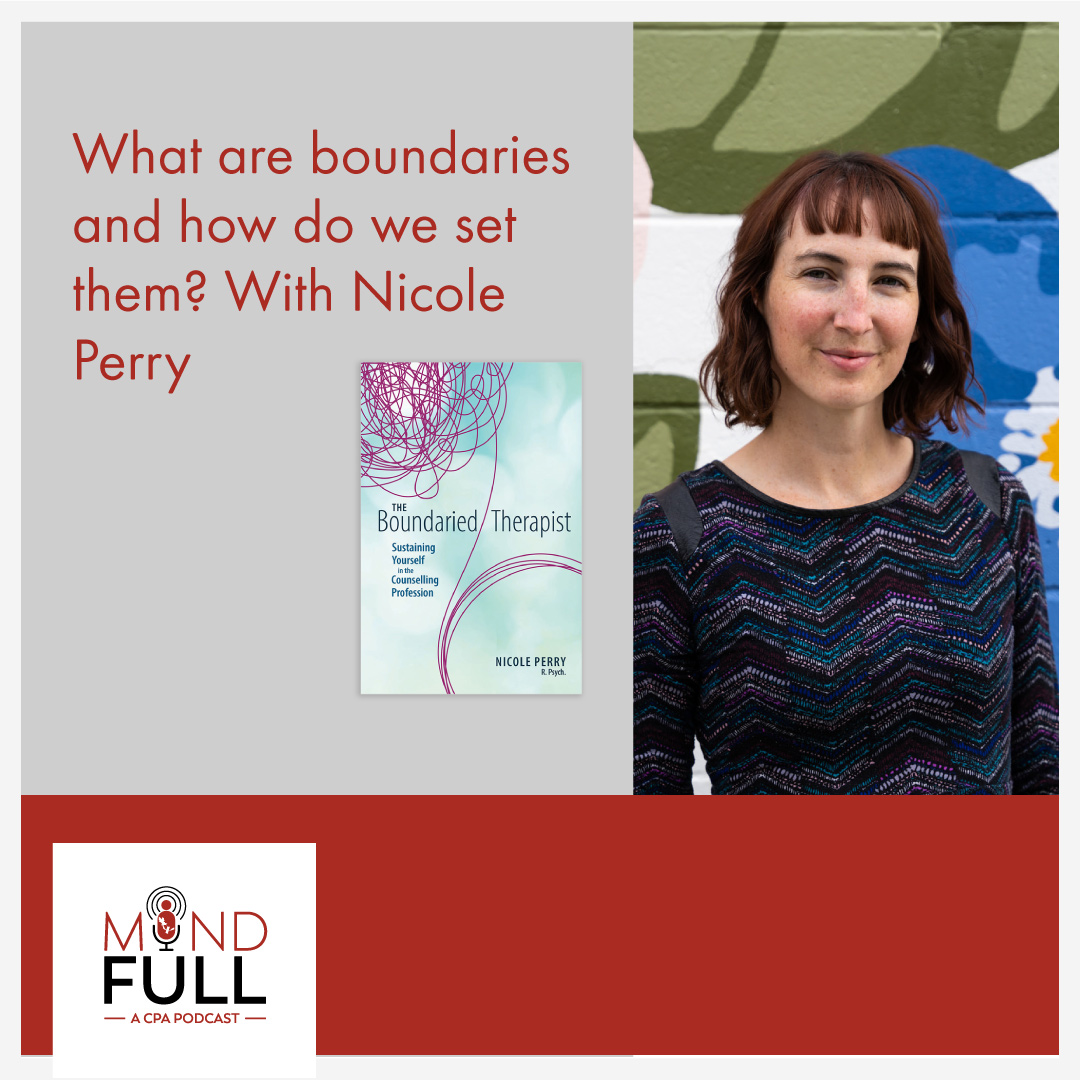
Nicole Perry is a psychologist in Edmonton who has written a new book called The Boundaried Therapist: Sustaining yourself in the counselling profession. The book is intended for both new and seasoned therapists, but the lessons and ideas about boundaries can be applied to us all.
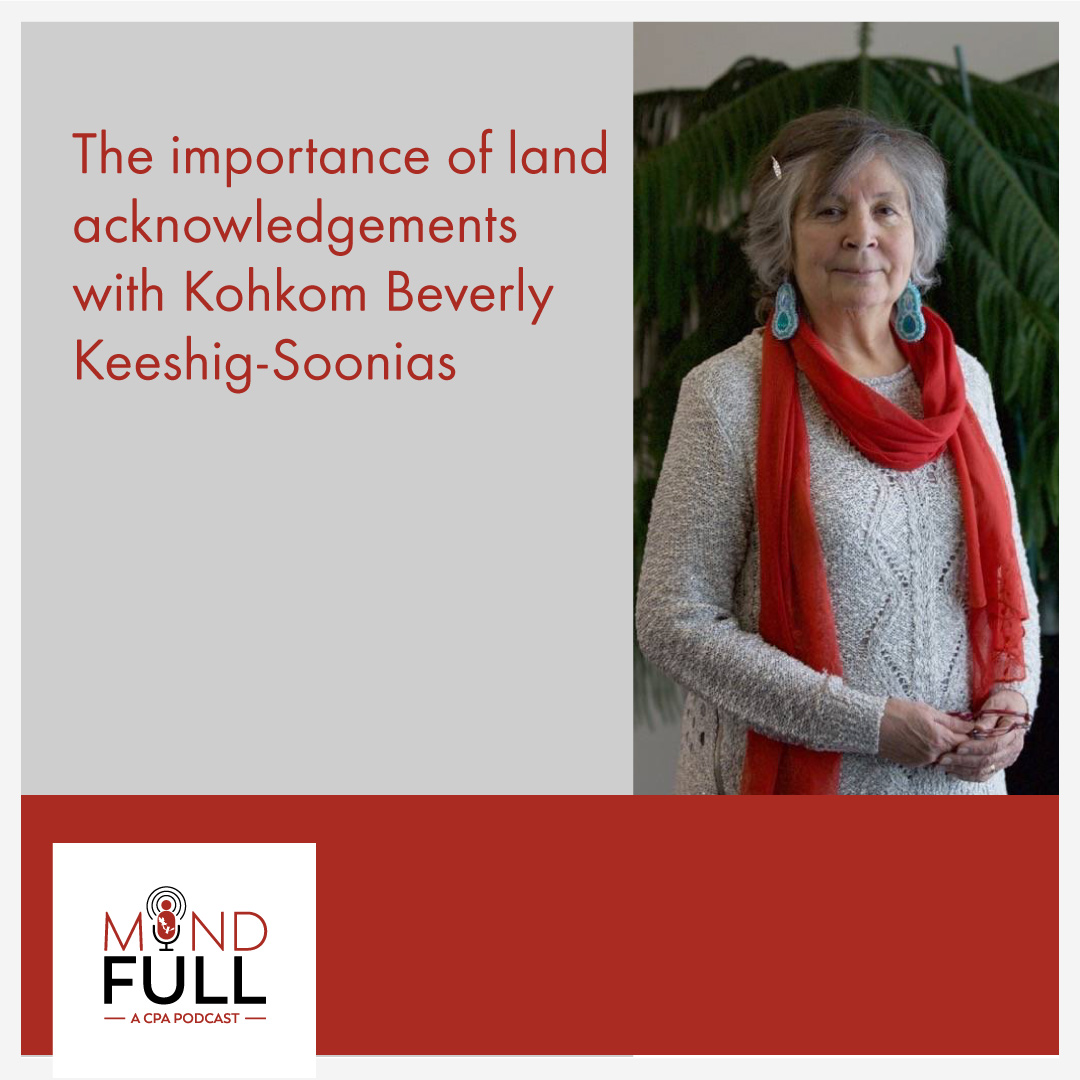
“Things are different now. The fish taste different. The animals are migrating differently.”
A land acknowledgement is not only about physical land – like the soil, and the ground under our feet. It’s so much more than that. Kohkom Beverly Keeshig-Soonias, the Chair of the Indigenous Peoples’ Psychology Section of the CPA, joins Mind Full to talk about the centuries of Indigenous tradition that are imbued in land acknowledgements, and how we can approach them in the right way in the spirit of reconciliation.
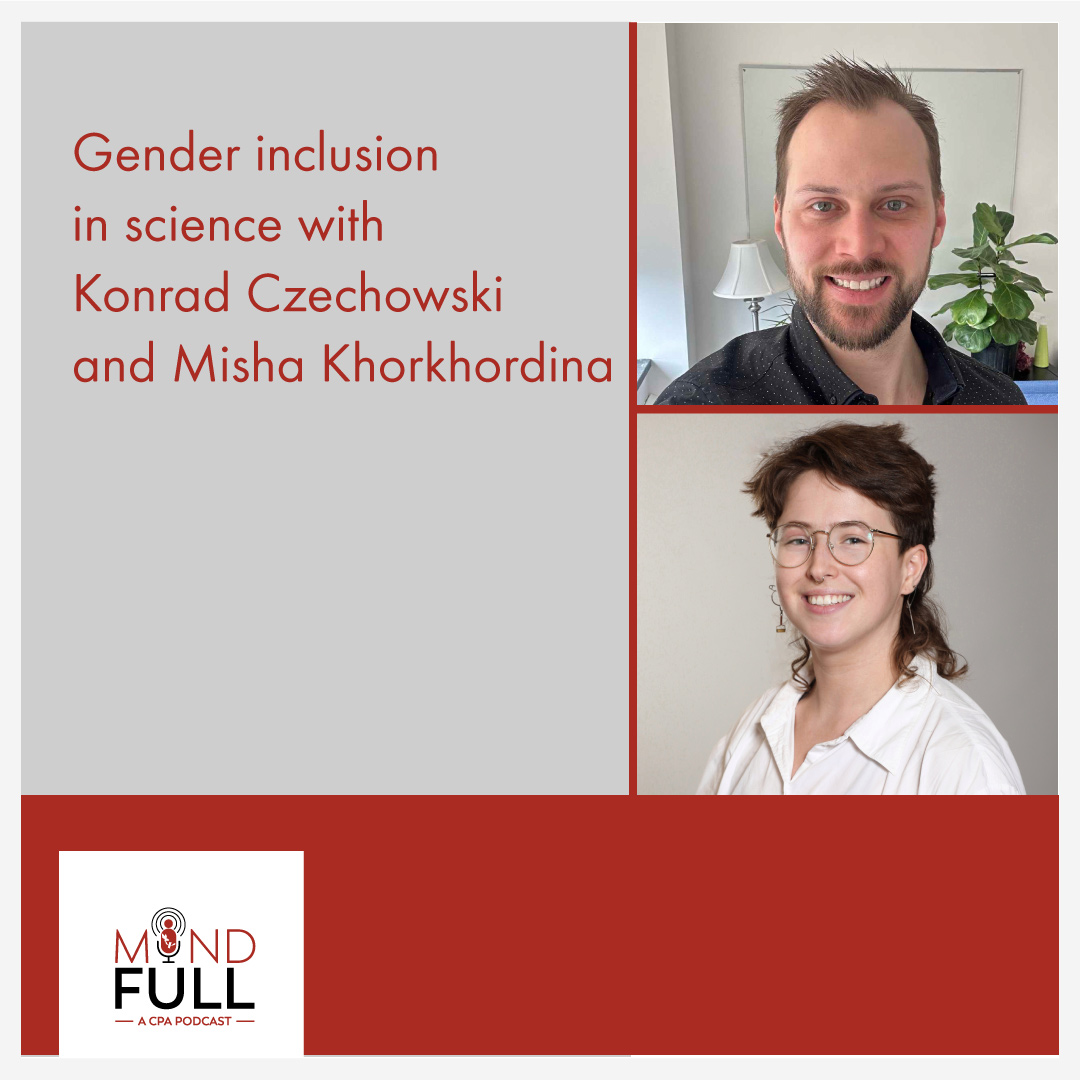
For too long, scientific studies have been cisnormative. For a researcher working with a sample of 1,000 people that include 496 women and 498 men, how do they represent the other 6? Konrad Czechowski and Misha Khorkhordina have set out to find a way. On this week’s Mind Full they share their study results, talk terminology, and provide a few ideas for researchers looking to be truly inclusive of all perspectives in their work.
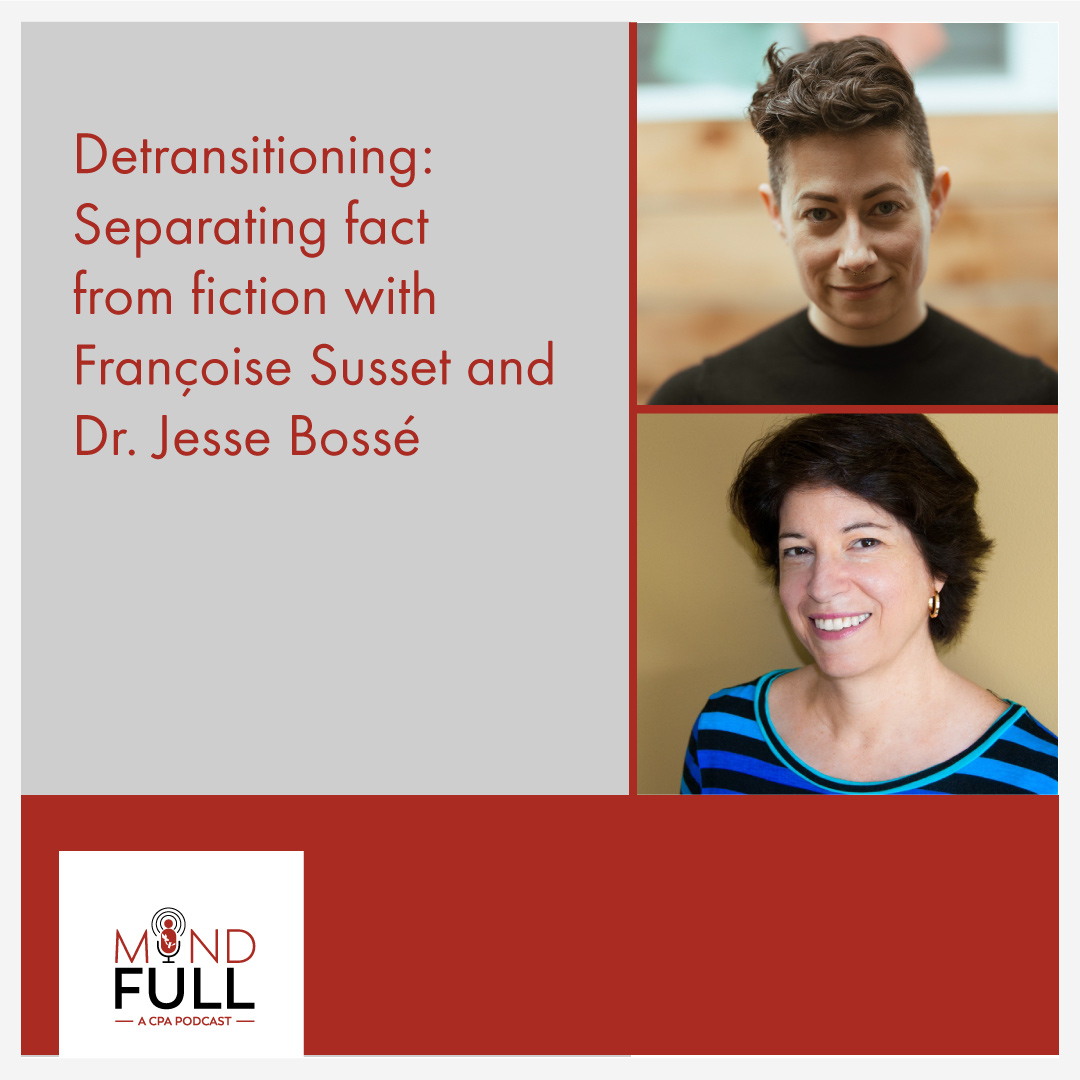
A lot of the furor over the rights of trans, non-binary, and other gender-diverse people has centered around the idea of ‘detransitioning’. That people who transition from the gender they were assigned at birth end up regretting that decision and transitioning back. In this Mind Full episode Françoise Susset and Dr. Jesse Bossé explain the data on detransitioning, the truth about regrets, and the reality the furor creates for vulnerable gender diverse populations.
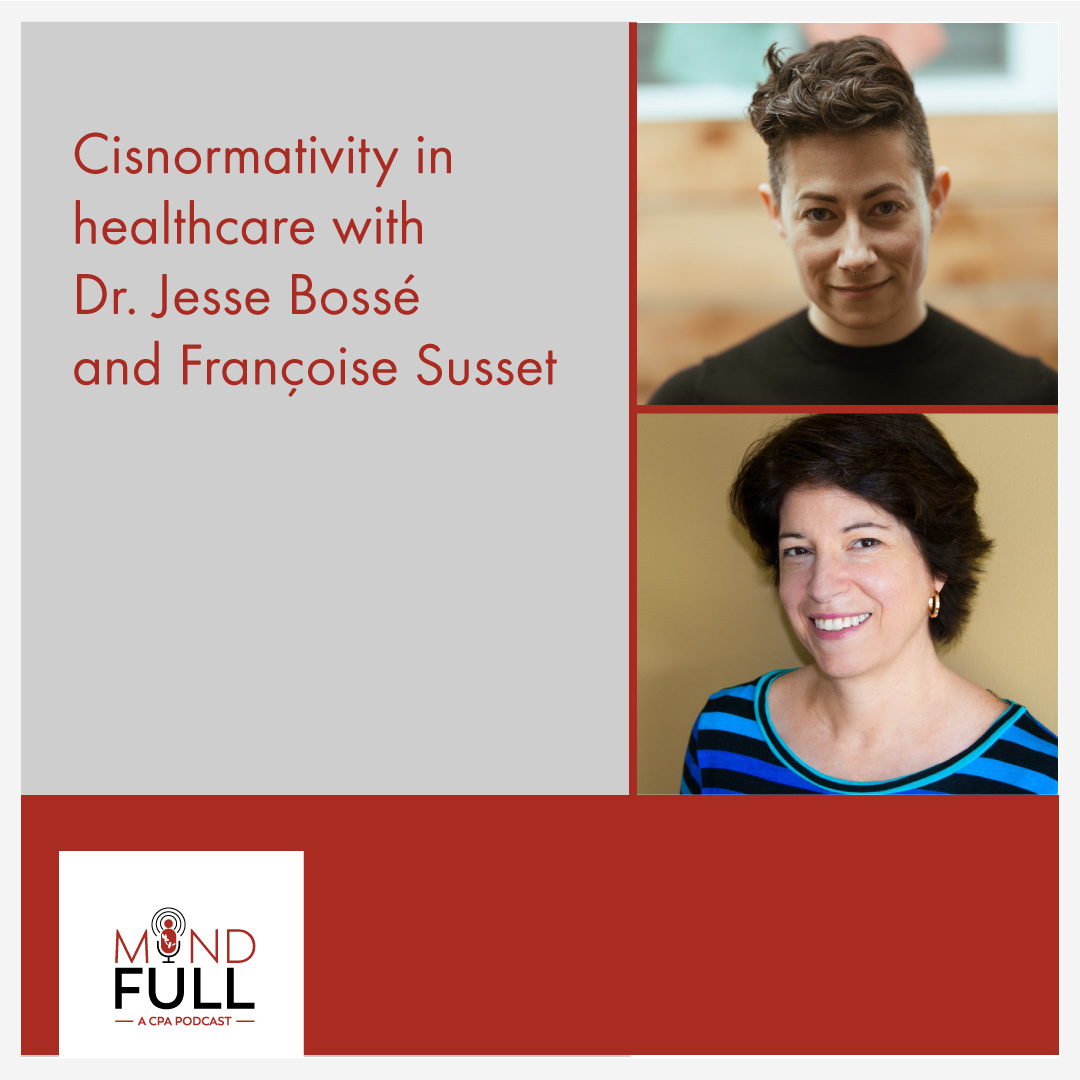
Canada’s healthcare system, and most Western healthcare systems, have long been cisnormative. Meaning that they are run by cisgender people, based on science that was conducted primarily with cisgender people, with methods that have not sought to include trans, non-binary, or other gender diverse folks. We talk with Dr. Jesse Bossé and Dr. Françoise Susset about the reasons for this, and the difficulties many people face as a result.
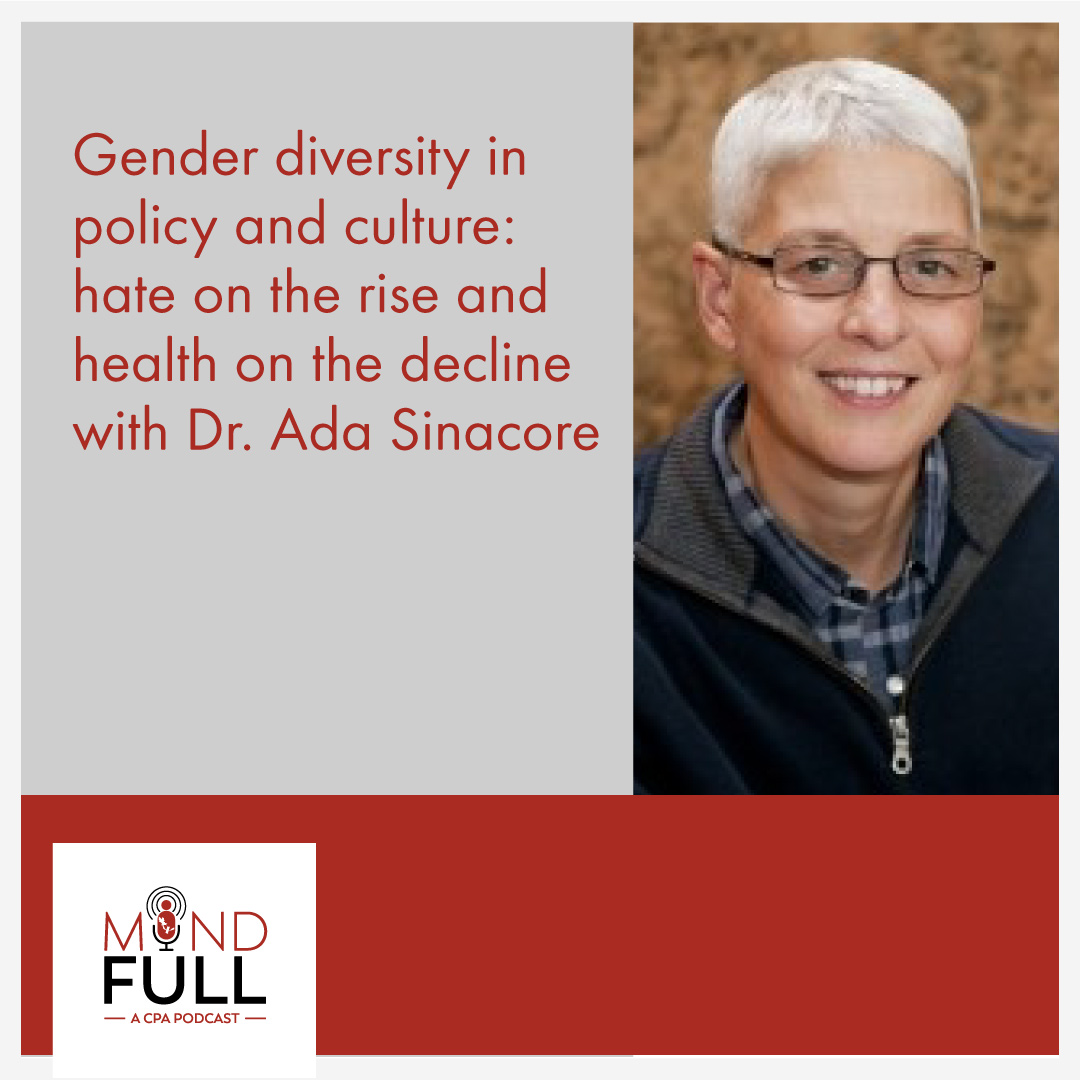
This is the first of four special episodes on gender diversity, science, and the healthcare system. McGill Psychology Professor Dr. Ada Sinacore joins Mind Full to talk about where we are in Canada and in the world when it comes to the treatment of those who do not identify as cisgender. Dr. Sinacore is the Past President of the Canadian Psychological Association, and has been instrumental in the creation of the CPA’s position paper on gender diversity and expression, and the special issue of the Psynopsis magazine on gender diversity.
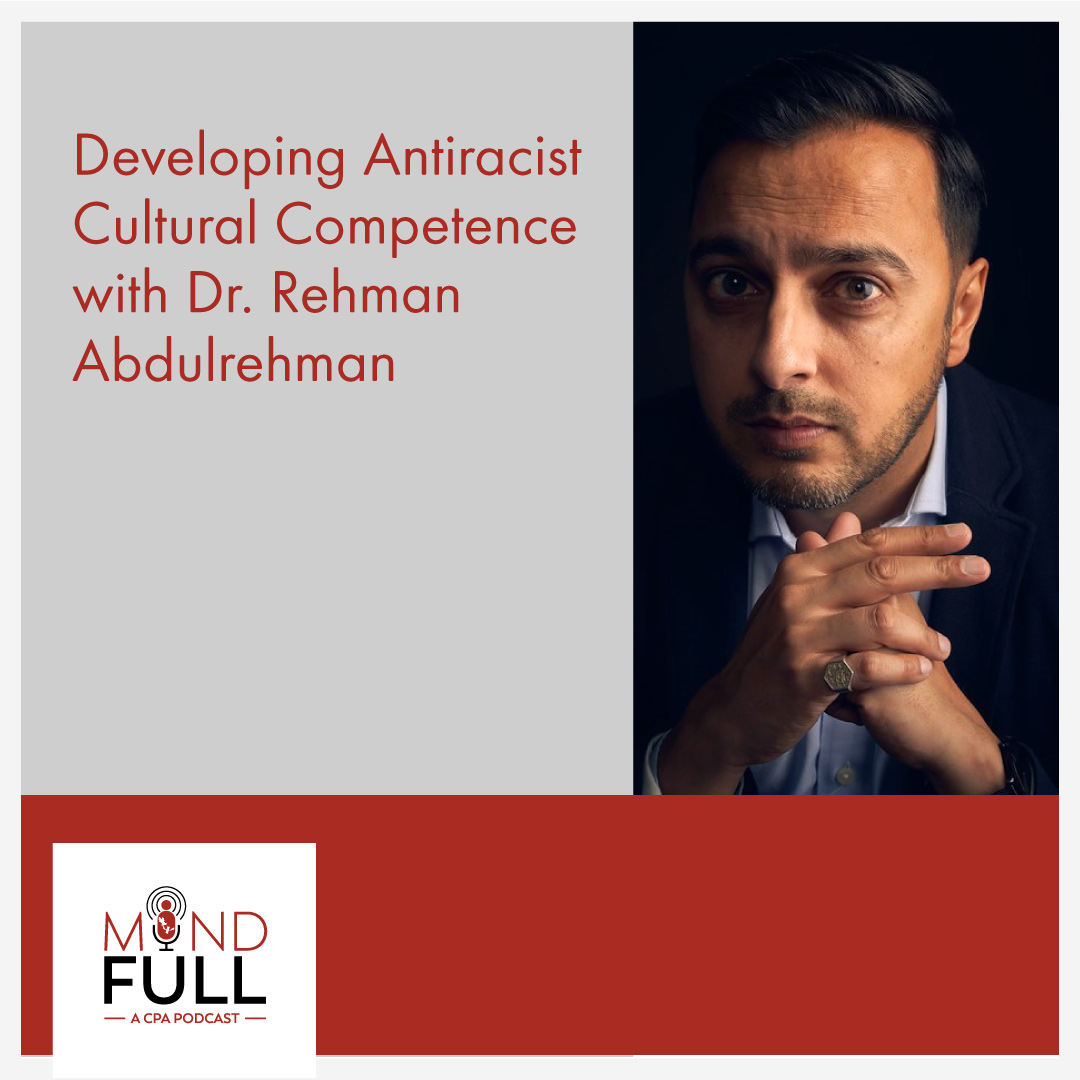
Dr. Rehman Abdulrehman joins Mind Full to talk about his new book Developing Anti-Racist Cultural Competence, and how while Canada is certainly a multi-ethic country, we are failing at the multicultural idea.
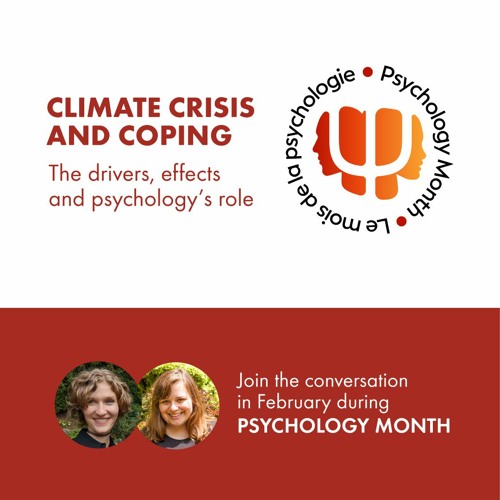
Throughout Psychology Month in February, the topic of disinformation when it comes to climate change has arisen time and again. To close out the month, we spoke with Kyra Simone and Rachel Salt at Science Up First about our responses to disinformation, ways to combat it, and difficult conversations with friends and family.
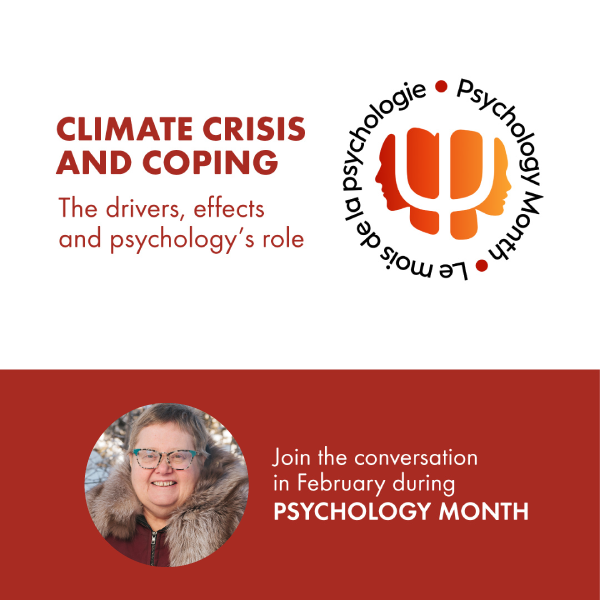
This summer wildfires ravaged the Northwest Territories, forcing the evacuation of about 70% of the population. Yellowknife psychologist Merril Dean was one of the evacuees, and saw the devastation from many perspectives. In this Psychology Month episode of the CPA podcast Mind Full, Merril shares her own experiences, as well as some thoughts on the government response and where the northern communities might go from here.
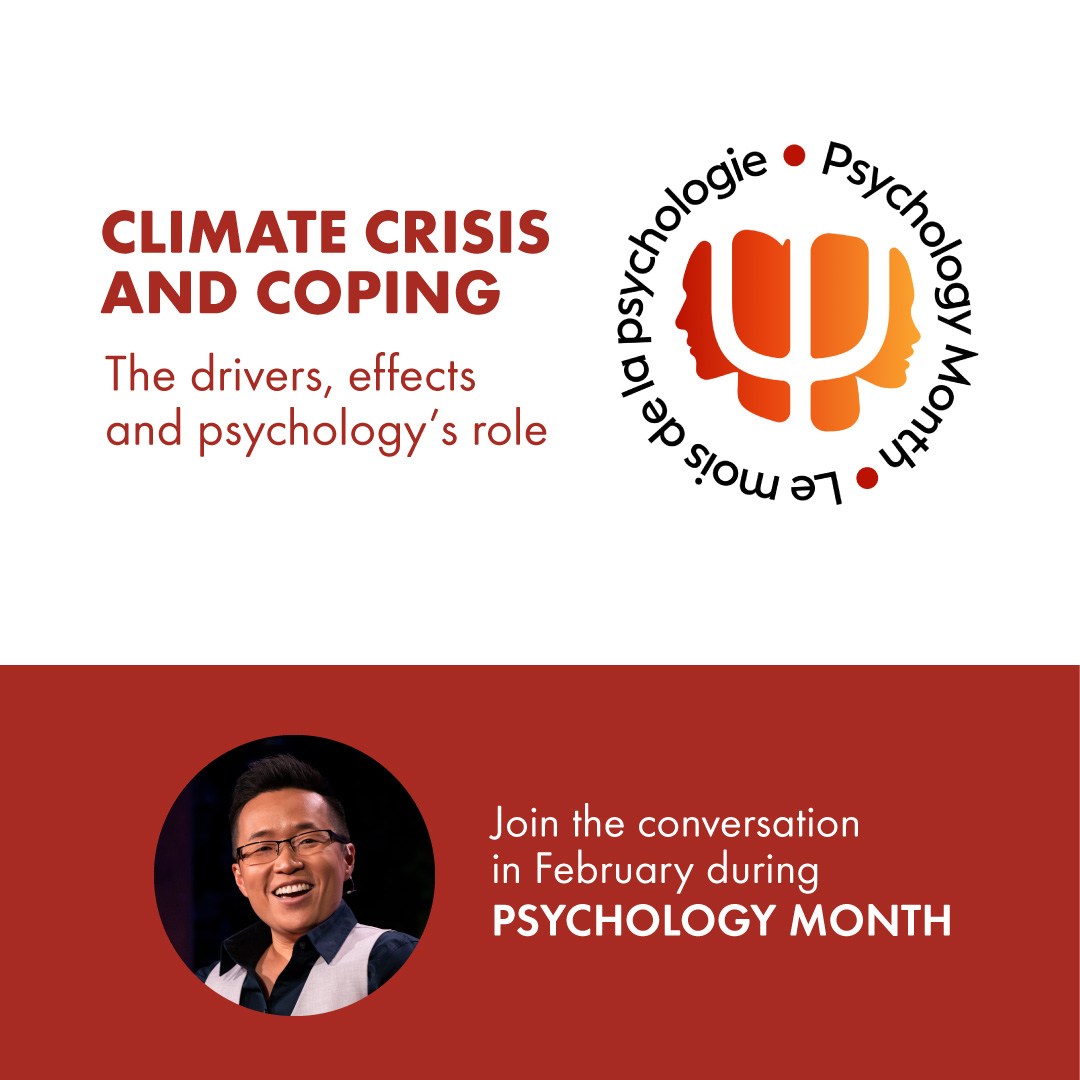
So much of the talk when it comes to the climate crisis is doom and gloom. It’s hard for many not to become a little defeatist or to throw their hands up and ignore the problem. The solution to that kind of despair is action – little actions that move us all toward a more sustainable future. And those actions – and the conversation about them – can be a happy one! Our podcast guest is Dr. Jiaying Zhao, who connects climate action to our own personal happiness in a way that we hope spurs some of that action – and makes you happy along the way!
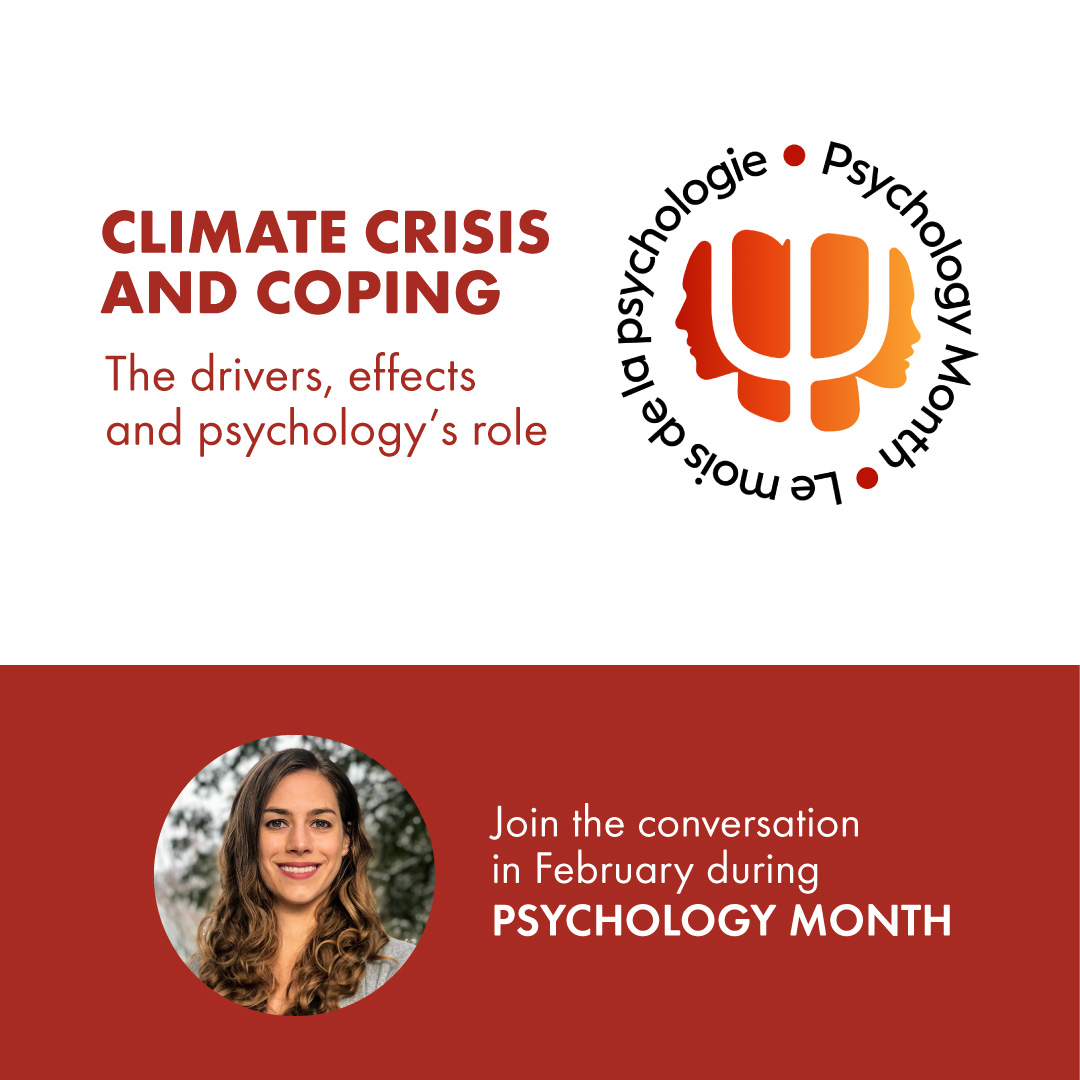
Dr. Alana Westwood and her lab at Dalhousie University recently completed a study of environmental researchers in Canada. Their results showed that researchers in this space still feel muzzled despite changes in federal policy designed to allow them more freedom to speak and share their results. On the CPA podcast Mind Full we discuss the reasons for this, the ramifications, and specifically what this means for environmental science – and the communication of that science – in Canada.
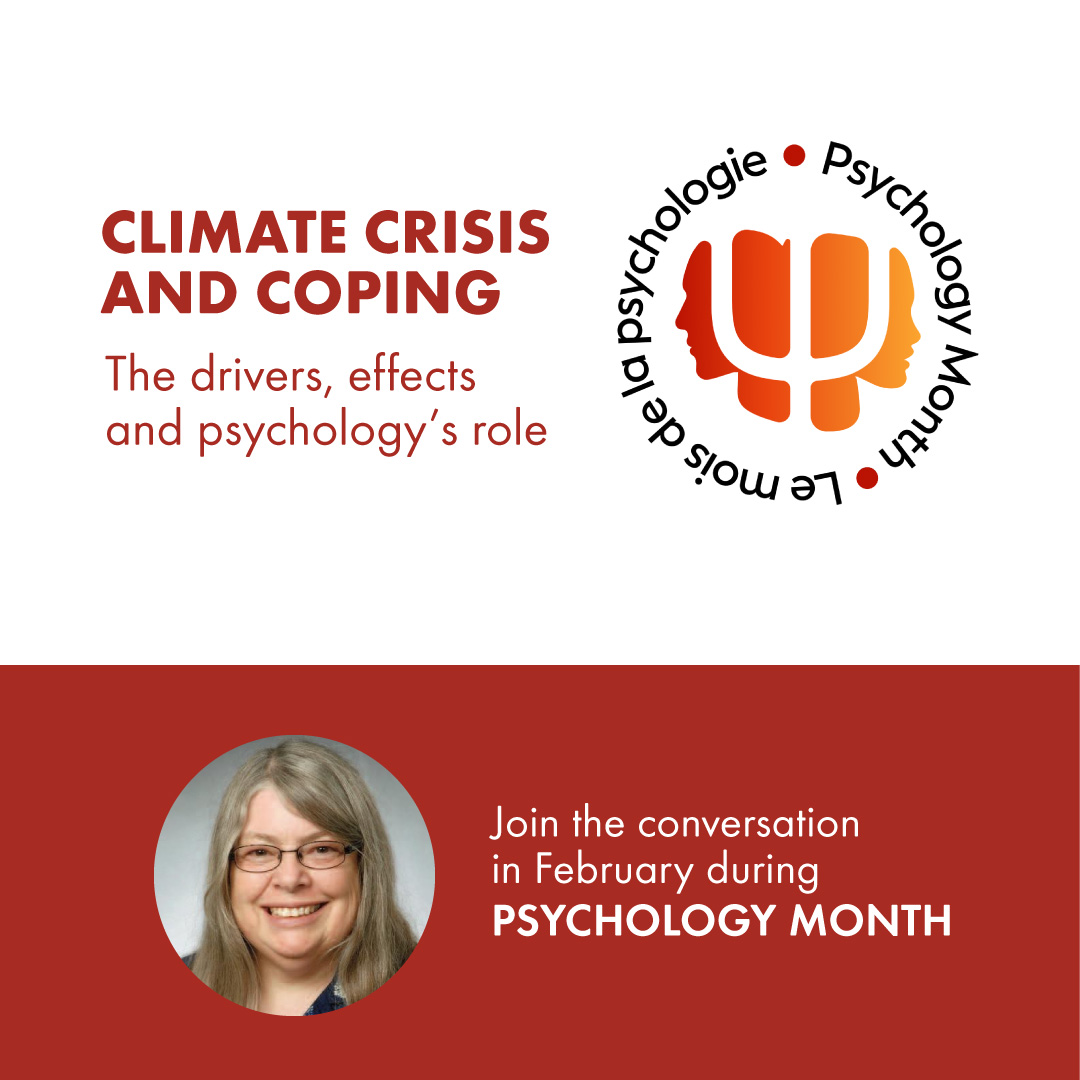
We kick off Psychology Month in February speaking with Dr. Katherine Arbuthnott about trust on the CPA podcast Mind Full. We tend to think of other people as self-interested, and we are therefore pessimistic about things like our ability to tackle major subjects like climate change. Dr. Arbuthnott is here to tell us this isn’t really the case – that most people are, in fact, willing to make sacrifices for the good of the communities and the people around them.
A health issue, not a criminal one: Decriminalizing illegal substances with Dr. Andrew Hyoun Soo Kim
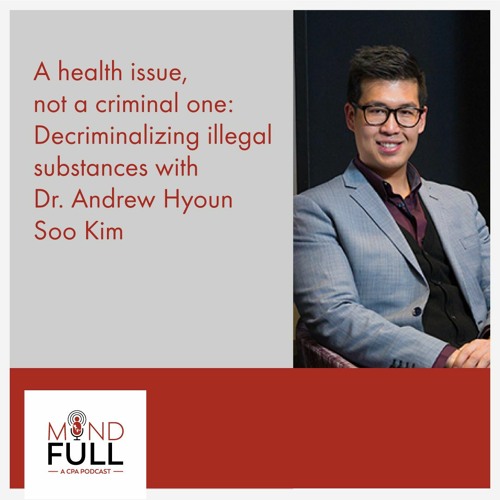
The CPA’s Working Group on Decriminalization recently published the position paper ‘The Decriminalization of Illegal Substances in Canada’. Dr. Andrew Kim, co-chair of the Working Group, joins Mind Full to discuss how the way we think about drug use informs the way we approach drug use – which should be from a health perspective, not a criminal one.
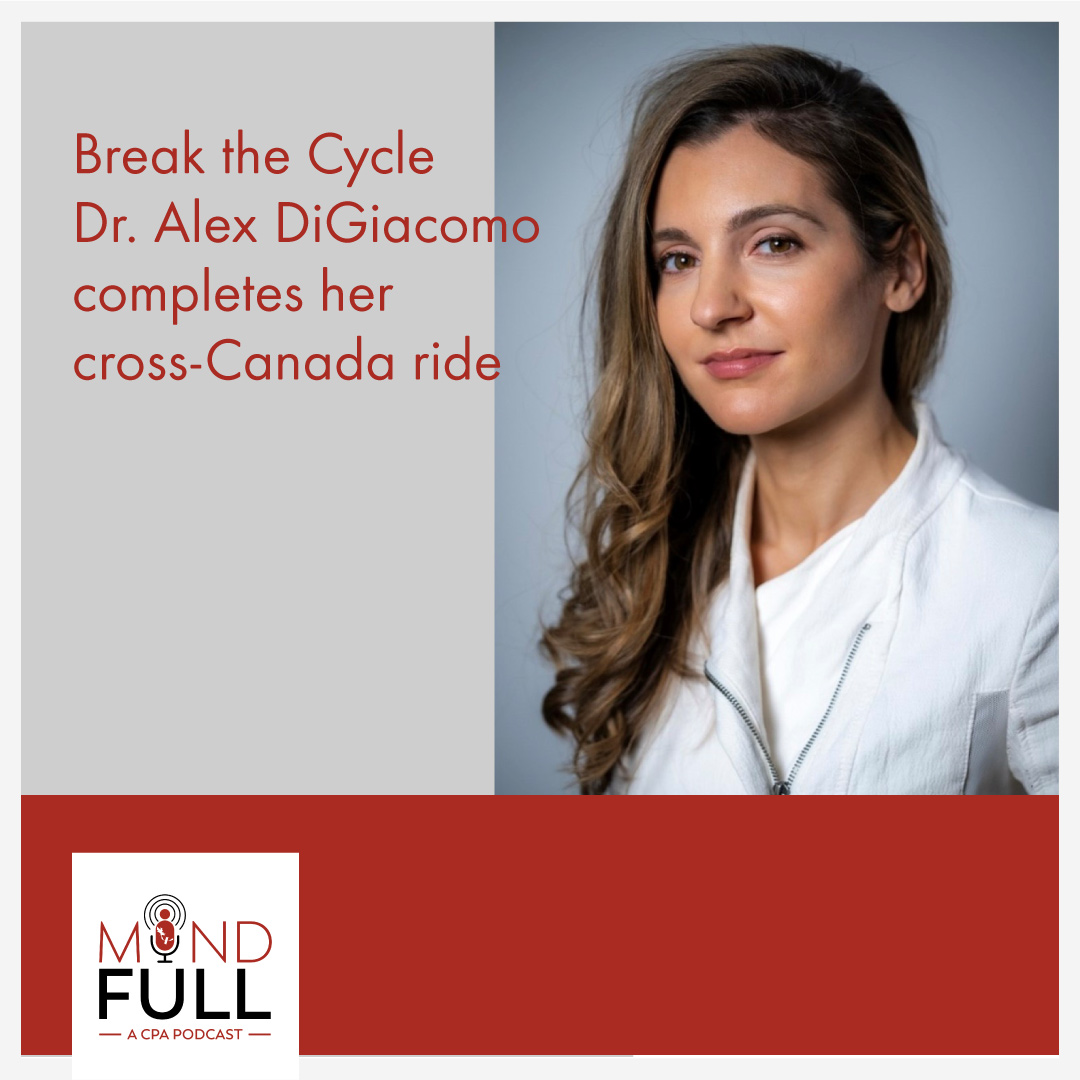
A month ago, we spoke to Dr. Alex DiGiacomo while she was at the halfway point of her cross-Canada cycling trip. She was raising money and awareness for kids’ mental health in this country, and the major gaps youth have in accessing that care. She has now completed the entire journey, so we invited her back to talk about the big picture, the fundraising effort, the pool noodle, and the incredible community she met and created along the way!
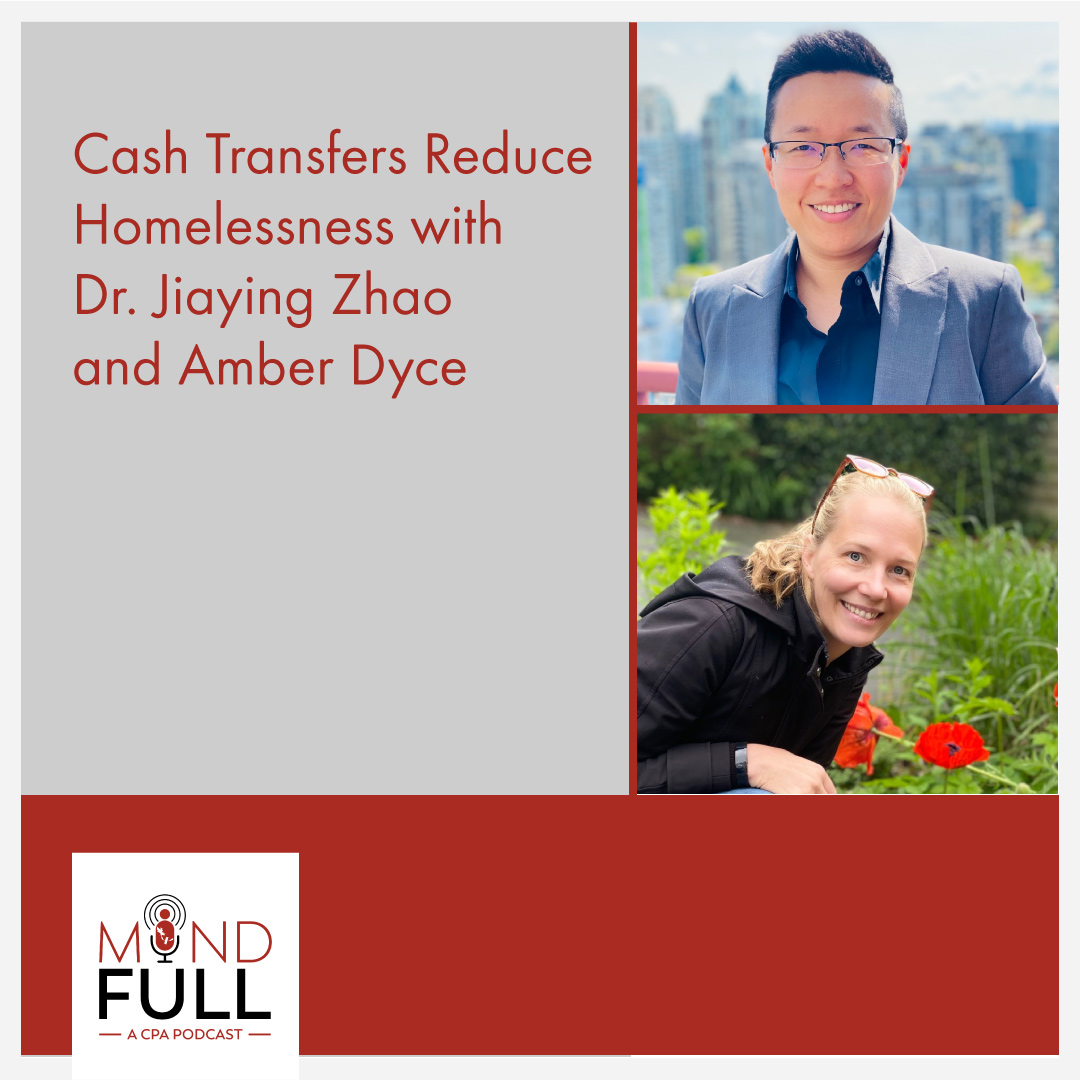
Researchers from UBC teamed up with Foundations for Social Change to conduct a study where they gave a one-time cash transfer of $7,500 to people experiencing homelessness. The results of the study are a first step toward transforming the way we see, and approach, homelessness. We spoke with study lead author Dr. Jiaying Zhao and Foundations for Social Change CEO Amber Dyce about the study itself and the possibilities for ending homelessness.
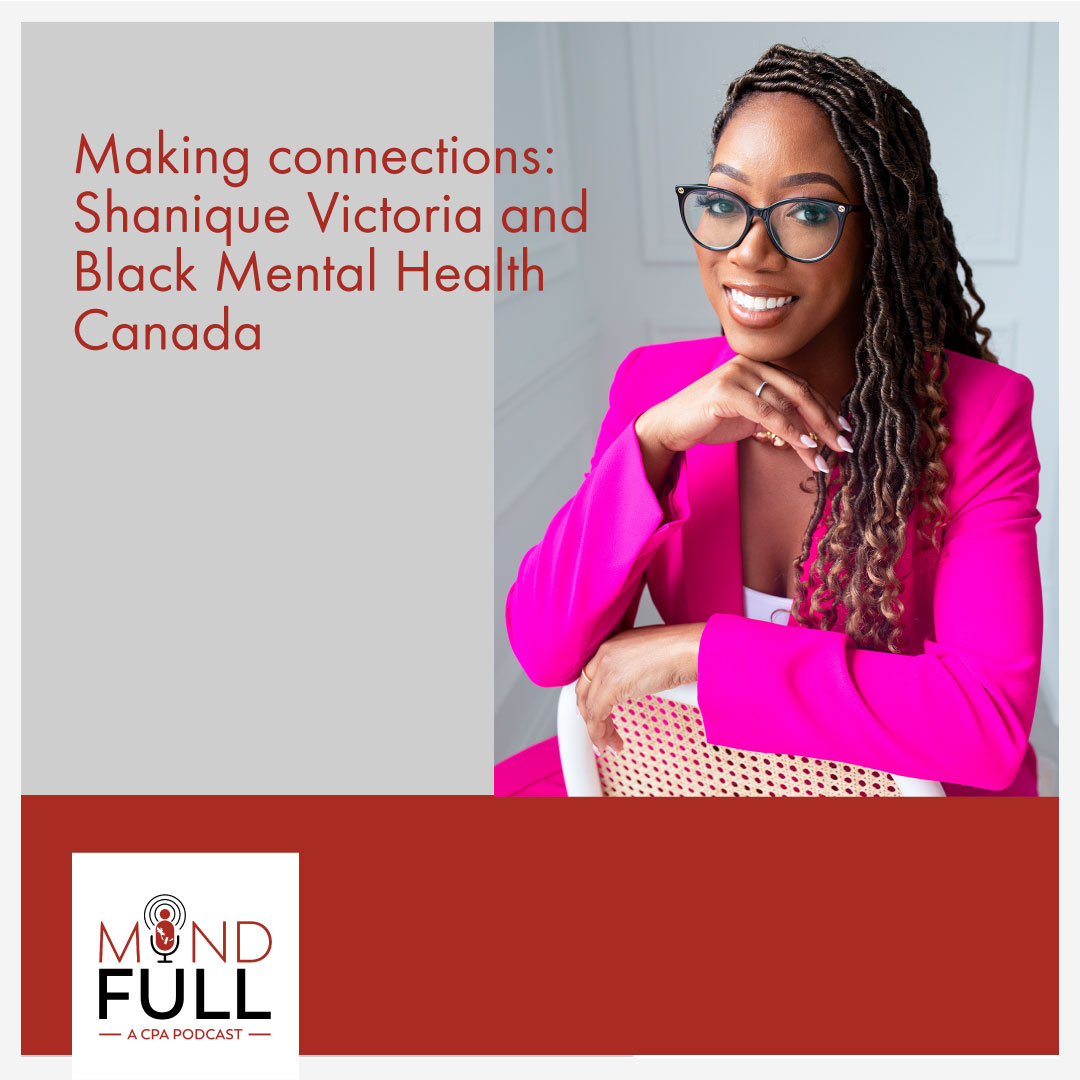
For many Black Canadians, their first contact with the mental health system is through the criminal justice system. Both systems that have historically marginalized and victimized minority communities, and in many ways are still doing so. Black Mental Health Canada (BMHC) is one of the organizations trying to change this paradigm. Shanique Victoria, Research Project Lead at BMHC, joins Mind Full to tell us more.
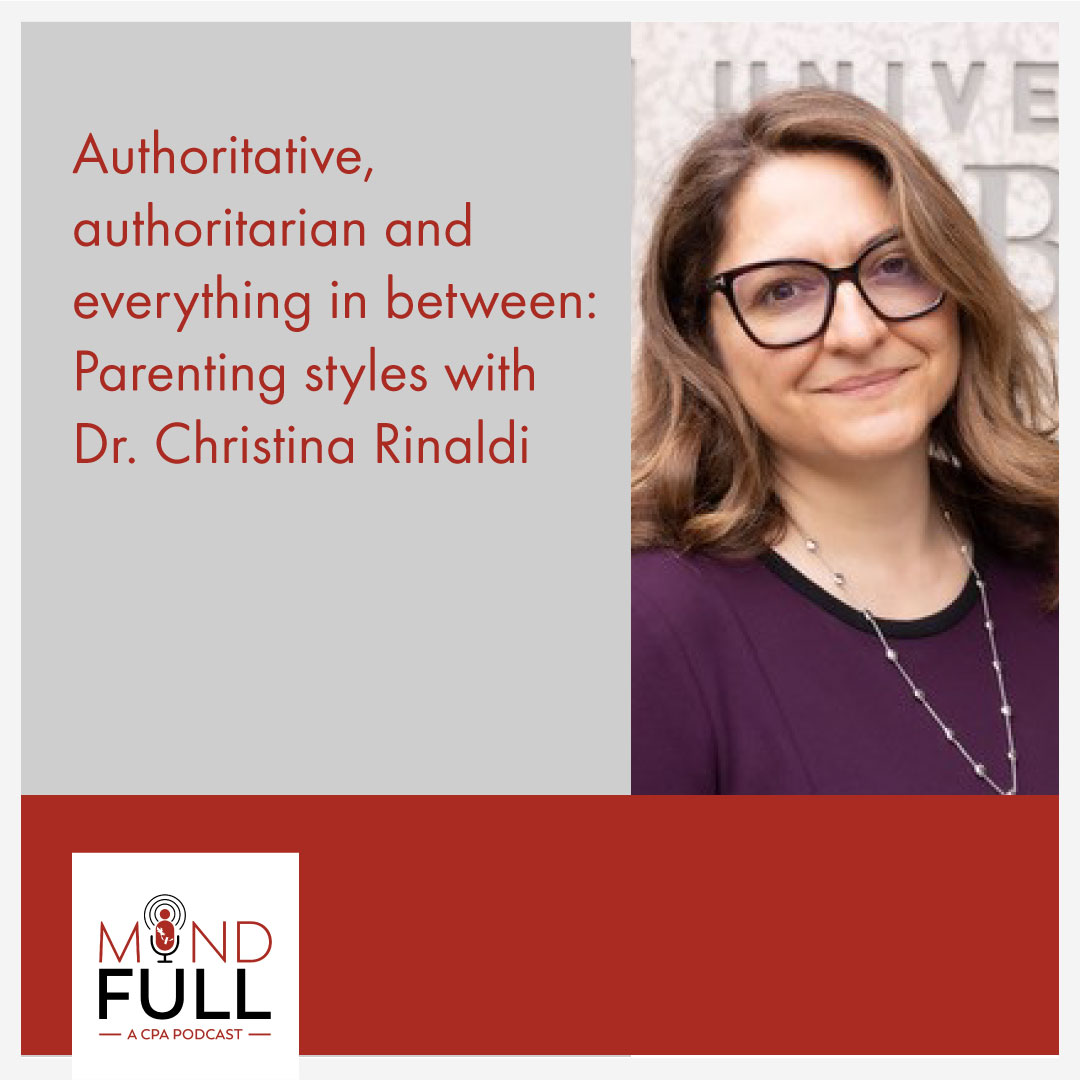
How do psychologists look at parenting and parenting styles? And is there one style that tends to work better than others? We invited Dr. Christina Rinaldi to Mind Full to help answer some of the burning questions parents might have.
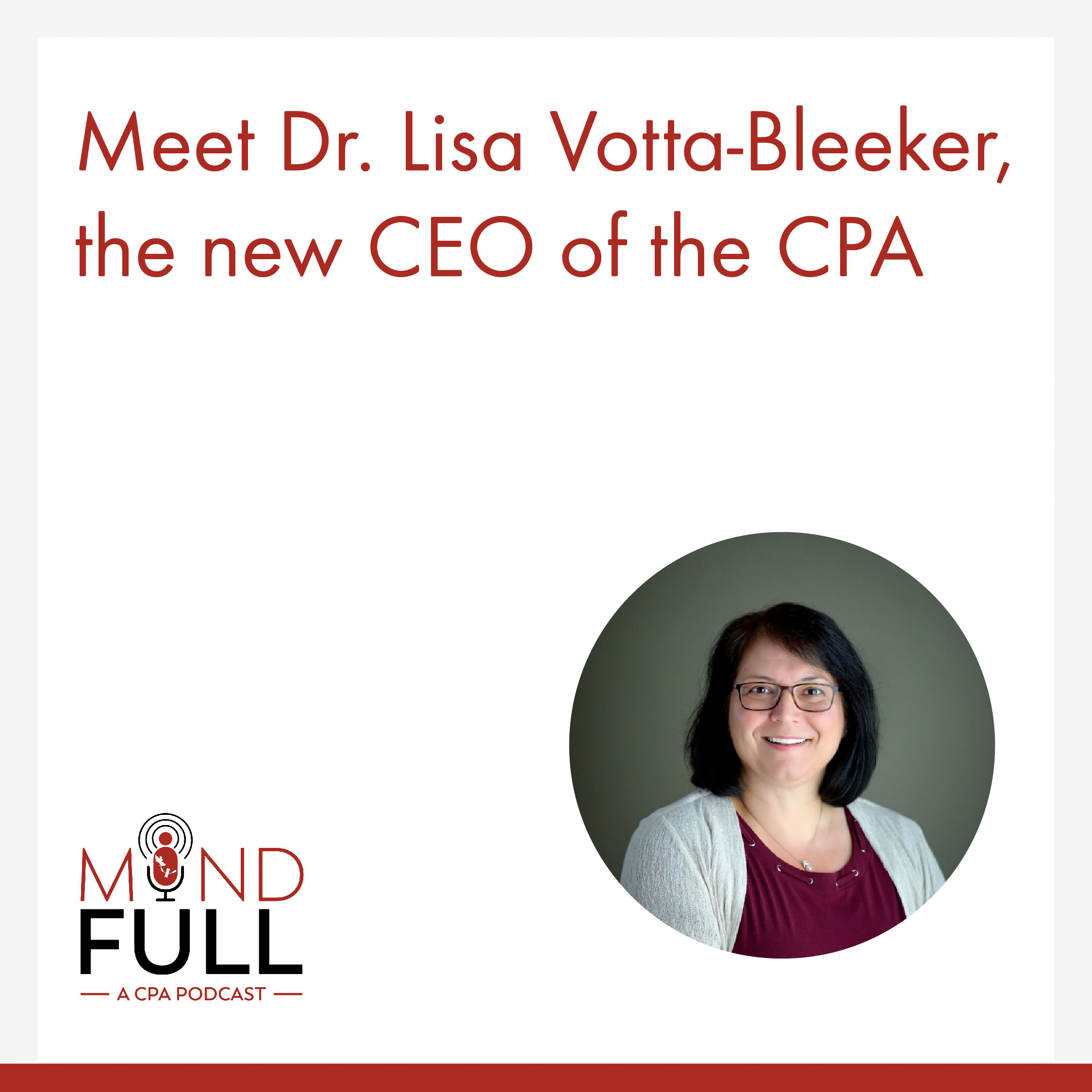
The CPA has a new CEO! Meet Dr. Lisa Votta-Bleeker on the latest episode of our podcast Mind Full.
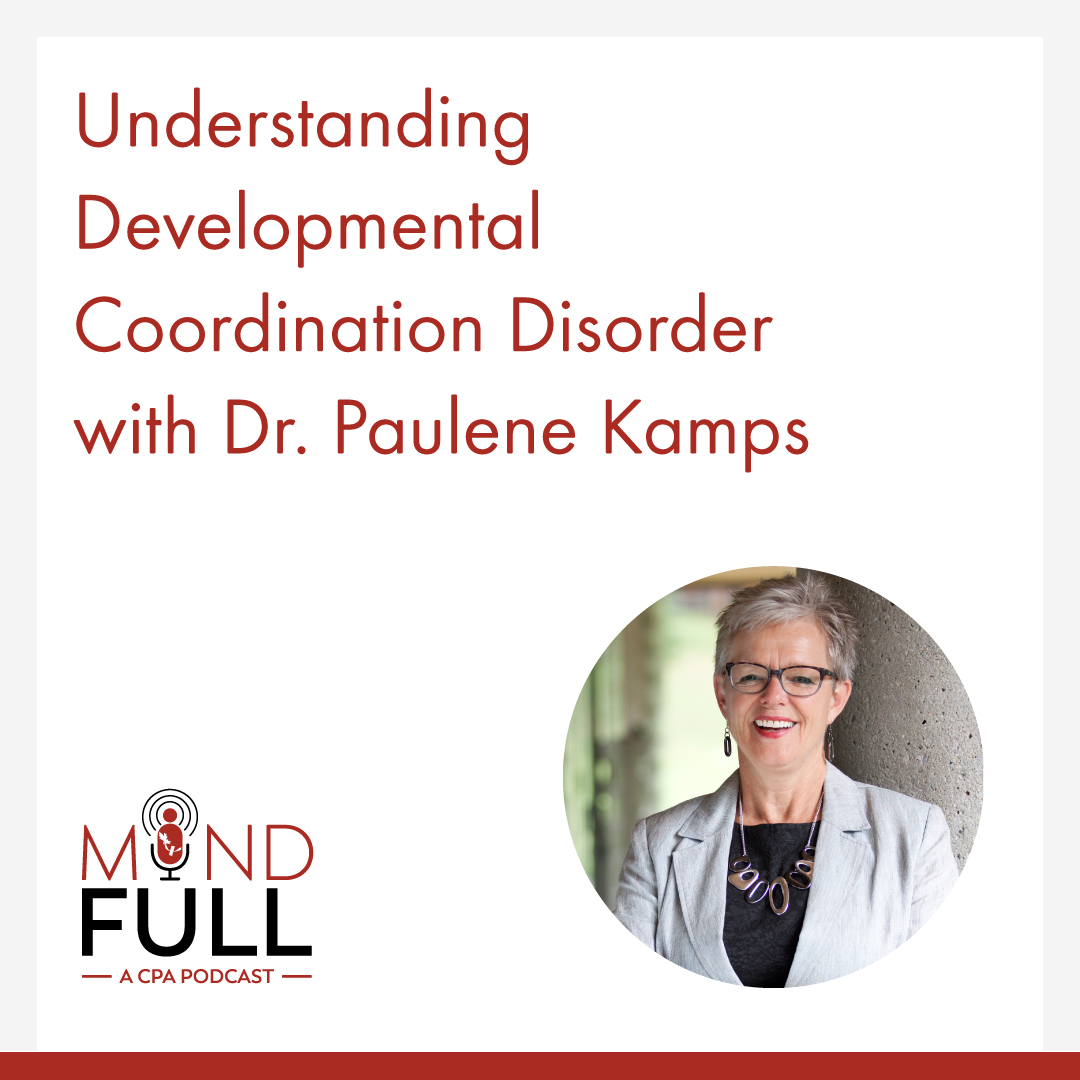
Developmental Coordination Disorder (DCD) affects up to one in 15 people, but it is not a well-known diagnosis. Many symptoms (difficulty tying shoes or holding a pencil, clumsiness) can be misunderstood. DCD expert Dr. Paulene Kamps tells us more.

We’ve spoken a fair amount on Mind Full the last few months about many aspects of gender diversity. Unfortunately, the misinformation and hatred directed at transgender and gender diverse people in both the public and political spheres continues to escalate.
Today, we wanted to speak with someone directly affected by this vitriol. Sara Weiss was targeted for her participation in the US Open pickleball tournament, and joins Eric to discuss the facts, the fiction, and the impact this has had on her directly.
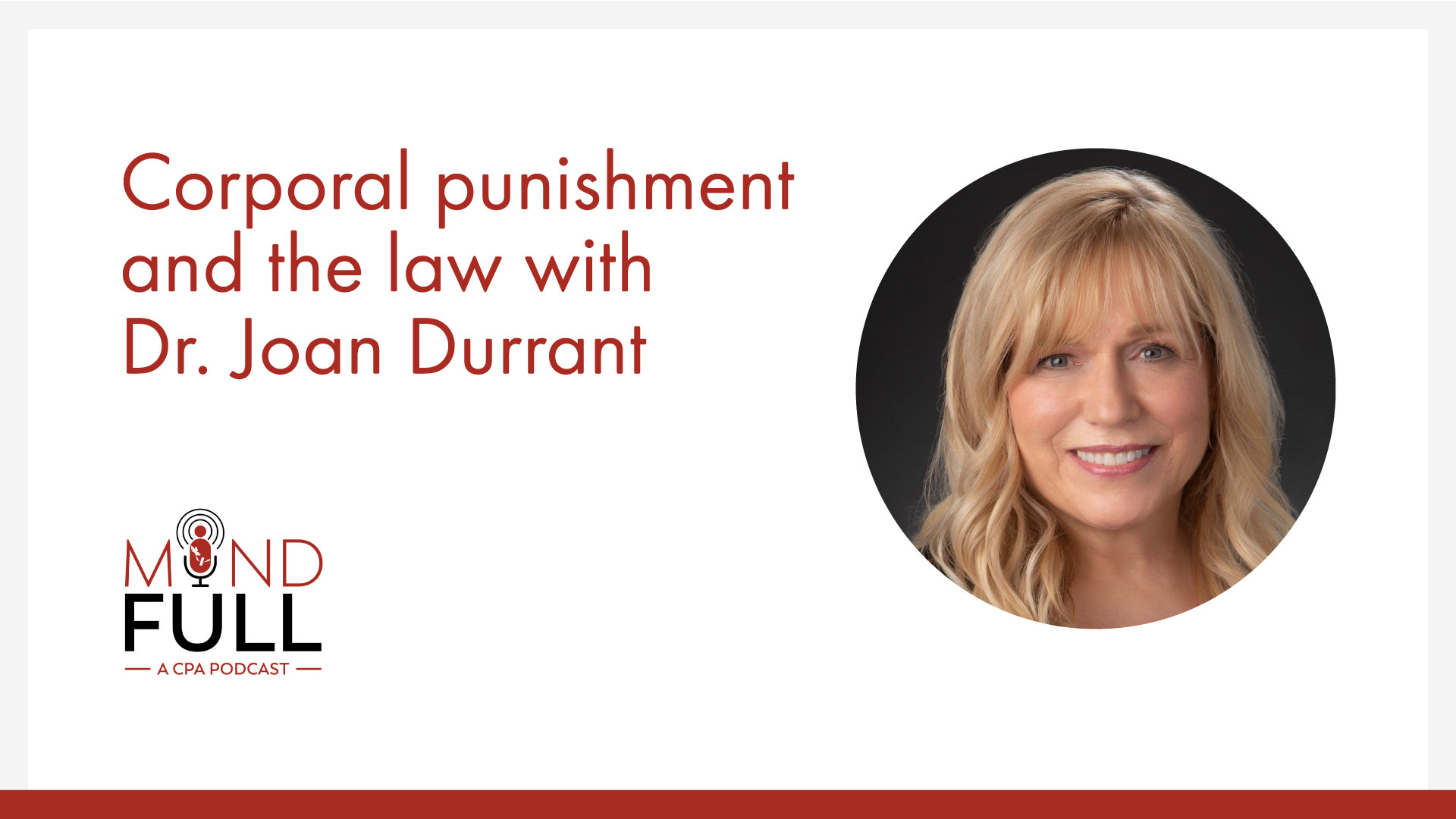
The CPA recently sent a letter of support for Bill S-251, Nova Scotia Senator Stan Kutcher’s bill that would repeal Section 43 of the Criminal Code of Canada. It would make it illegal to hit children for any reason. This has been a very long, very arduous process and effort.
Dr. Joan Durrant has been campaigning for this for more than 30 years, while dozens of other countries around the world have listened to the science and the evidence and have adopted this policy. She joins us on the CPA podcast Mind Full to talk about the science, the outcomes, and the need to ban corporal punishment in Canada once and for all.

Embodiment is a recognition of the way your mind and body are connected – paying attention to the signals your body sends you can help a great deal. Dr. Julie Beaulac, Casey Berglund, and Courtney Amo have written a book on the subject, specifically for leaders and bringing embodiment to a leadership role. Dr. Beaulac and Casey sit down with Mind Full to tell us about it.
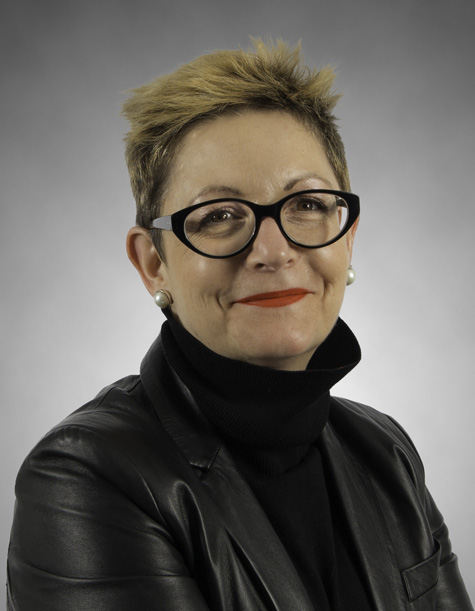
As Dr. Karen Cohen prepares to retire as CPA CEO, we reflect on her remarkable career – the highs, the lows, the many accomplishments and the ongoing work that remains.

PeerScholar is a tool used by universities and schools around the world to assist students in working collaboratively – reviewing papers and projects for one another, and getting feedback outside of the direct student-to-teacher system of handing in assignments. We spoke to Dr. Steve Joordens, one of the creators of PeerScholar, about how it works and the needs it is meeting.
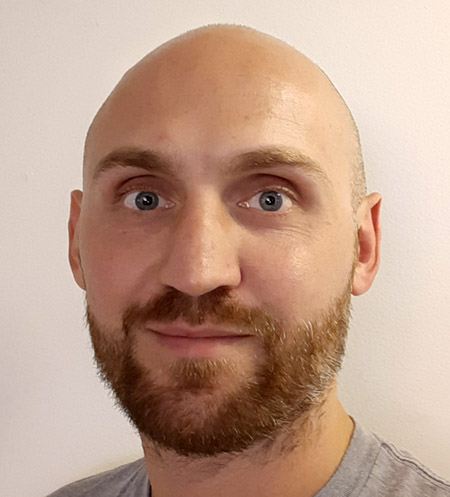
It’s Be A Donor month in April, and we wanted to explore the factors that either encourage or discourage people from becoming organ donors. The vast majority of Canadians say they are in favour of organ donation, yet most are not organ donors. Why is this? And why doesn’t an ‘opt-out’ option solve the problem? We spoke with Dr. Jake Crawshaw about this and more.
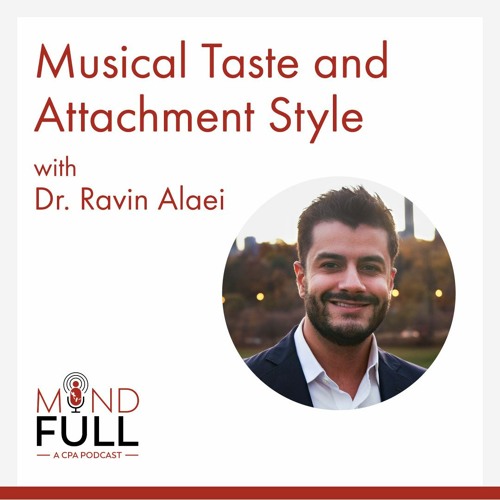
Dr. Ravin Alaei joins Mind Full to explain ‘attachment style’ in relationships, and to tell us about his study linking attachment style to musical taste. Yes, it’s just another excuse for Eric to talk to someone about music.
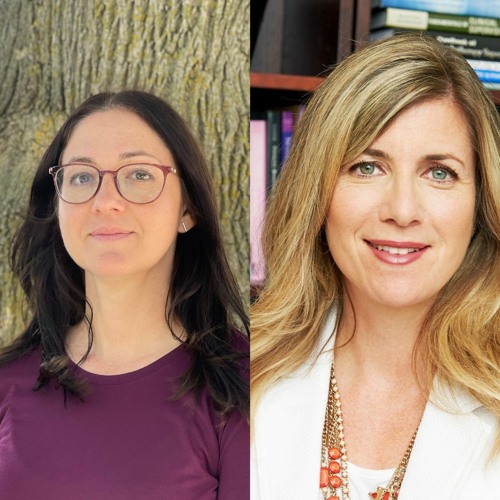
Ontario Health’s Mental Health and Addictions Centre of Excellence is looking to create a more integrated, higher quality, and more accessible mental health and addictions system in Ontario. To that end, they have recruited five Provincial Clinical Leads to champion different areas of focus. Two of those Clinical Leads, Dr. Caitlin Davey and Dr. Randi McCabe join Mind Full to talk about this program and how to improve provincial delivery of mental health supports.
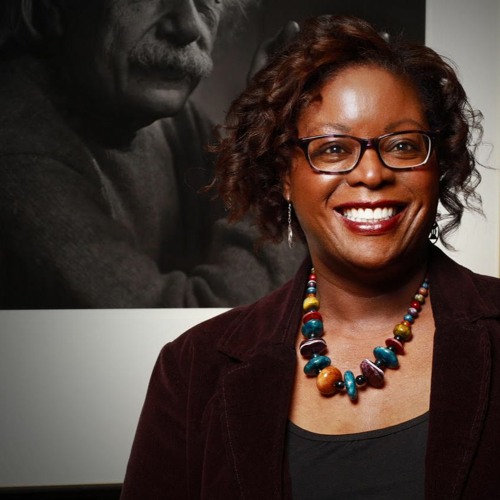
Dr. Helen Ofosu returns to the Mind Full podcast on the occasion of the publication of her new book, How To Be Resilient In Your Career: Facing Up To Barriers At Work. An Industrial/Organizational psychologist, Dr. Ofosu helps employees navigate difficult career choices, and discusses some of the themes of her new book with us.
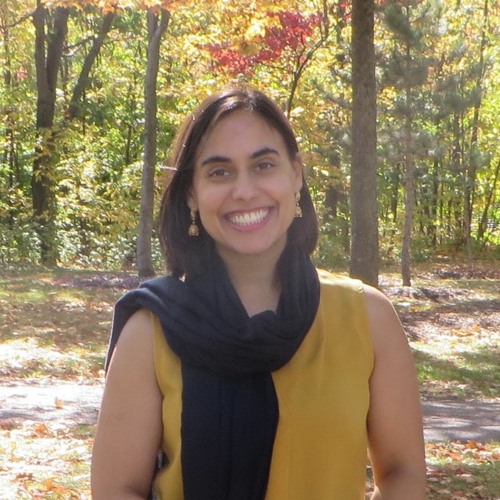
Dr. Maya Yampolsky’s research introduces the concept of ‘intimate racism’ – that being racism that comes from those closest to us, particularly in intercultural relationships. Dr. Yampolsky has shown that this kind of racism is far more prevalent than we might otherwise think, and shares some personal examples that illustrate the issue in vivid context.
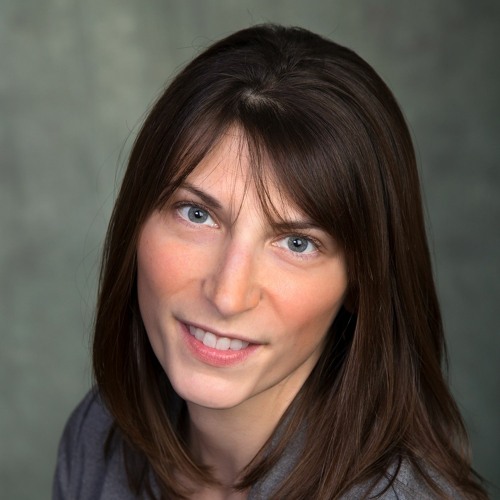
We invited Dr. Lindsay McCunn on to the Mind Full podcast to talk about a chapter she co-wrote with CPA CEO Dr. Karen Cohen in the recent book ‘Climate Action and Global Psychology’, and psychology’s role in protecting our world. We ended up talking about what environmental psychologists do (it’s not all about climate change!) and, eventually, got to the book chapter.
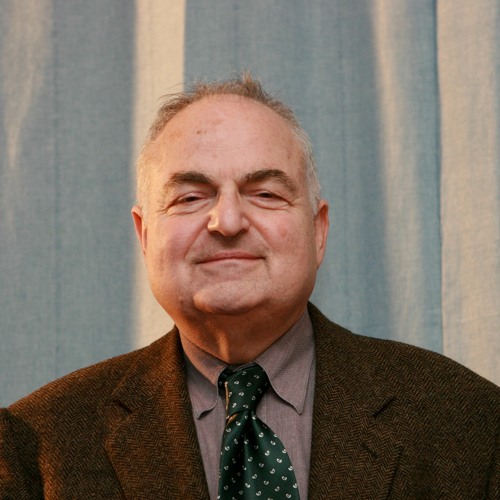
For years, it has been conventional wisdom that depression can be caused by a chemical imbalance in the brain. Conventional wisdom in the general public – but not among psychiatrists who have long known this is not necessarily the case. We speak to Dr. Joel Paris about the persistence of this myth, and the value of increasing funding for therapy in addition to – and on occasion in place of – medication.
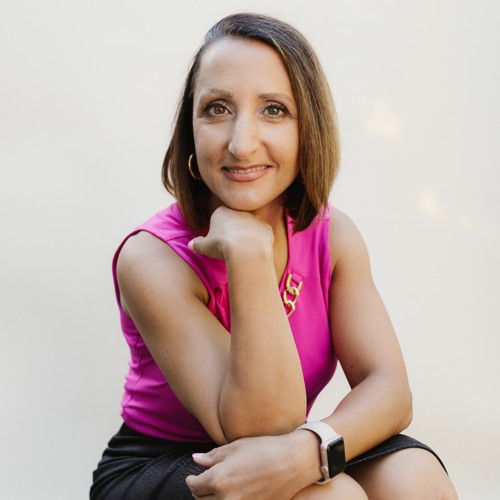
Dr. Lori Brotto is the author of the 2018 book ‘Better Sex Through Mindfulness: How Women Can Cultivate Desire’. This year she published a companion piece, a workbook that provides strategies that women (and men!) can use. Kathryn and Eric speak with Dr. Brotto about the new workbook, sex in relationships, and how the stigma around sex research has changed over the past few decades.

